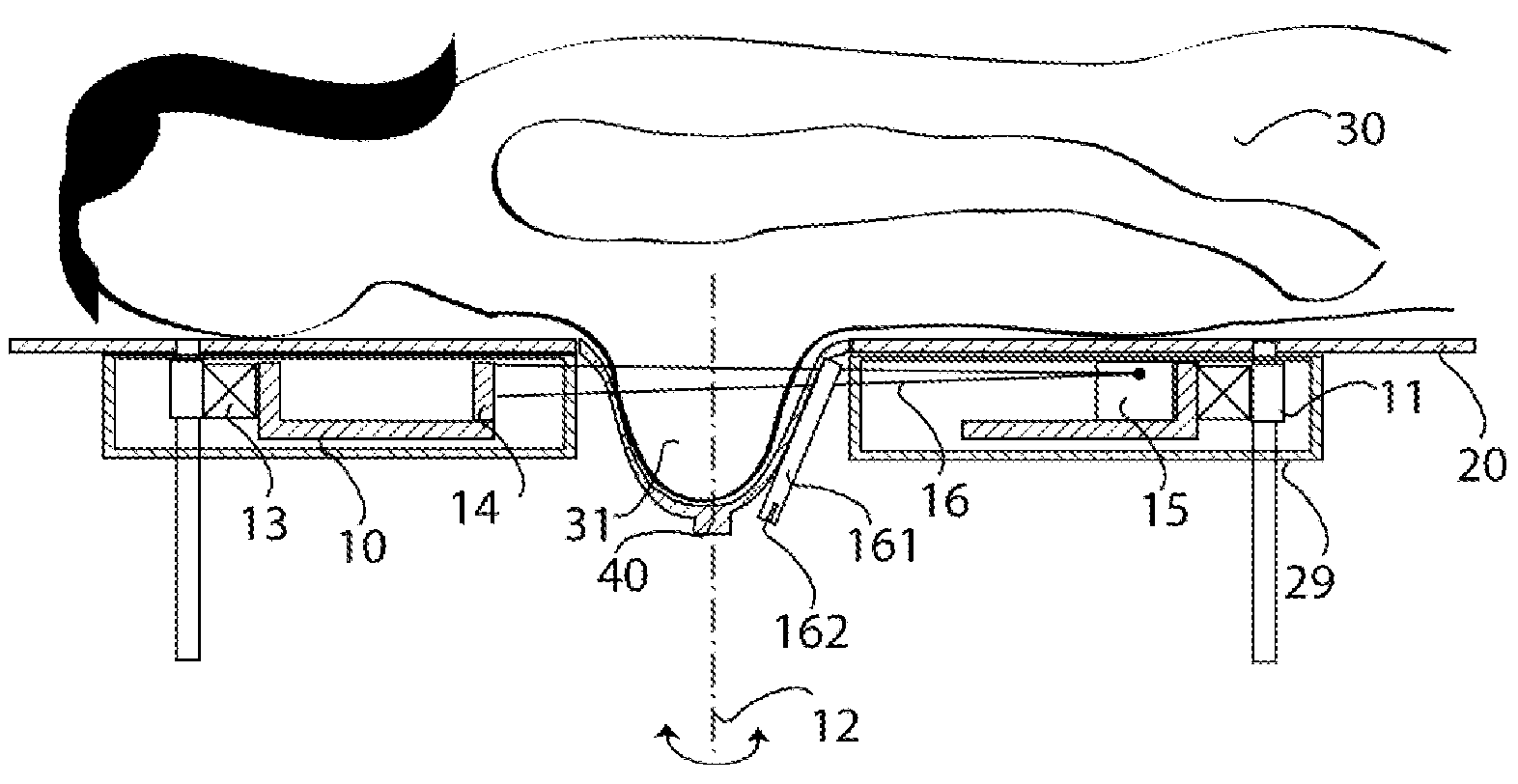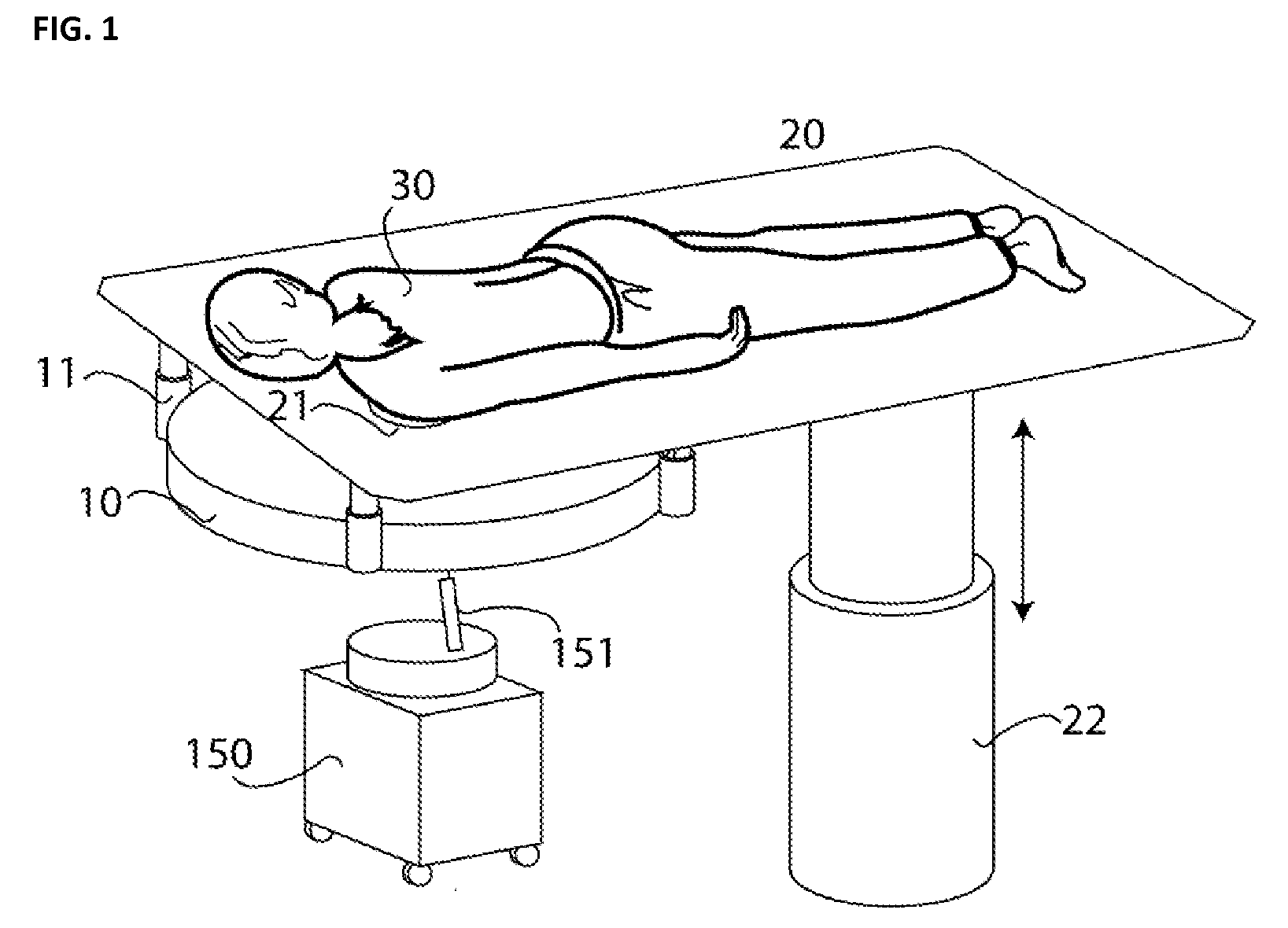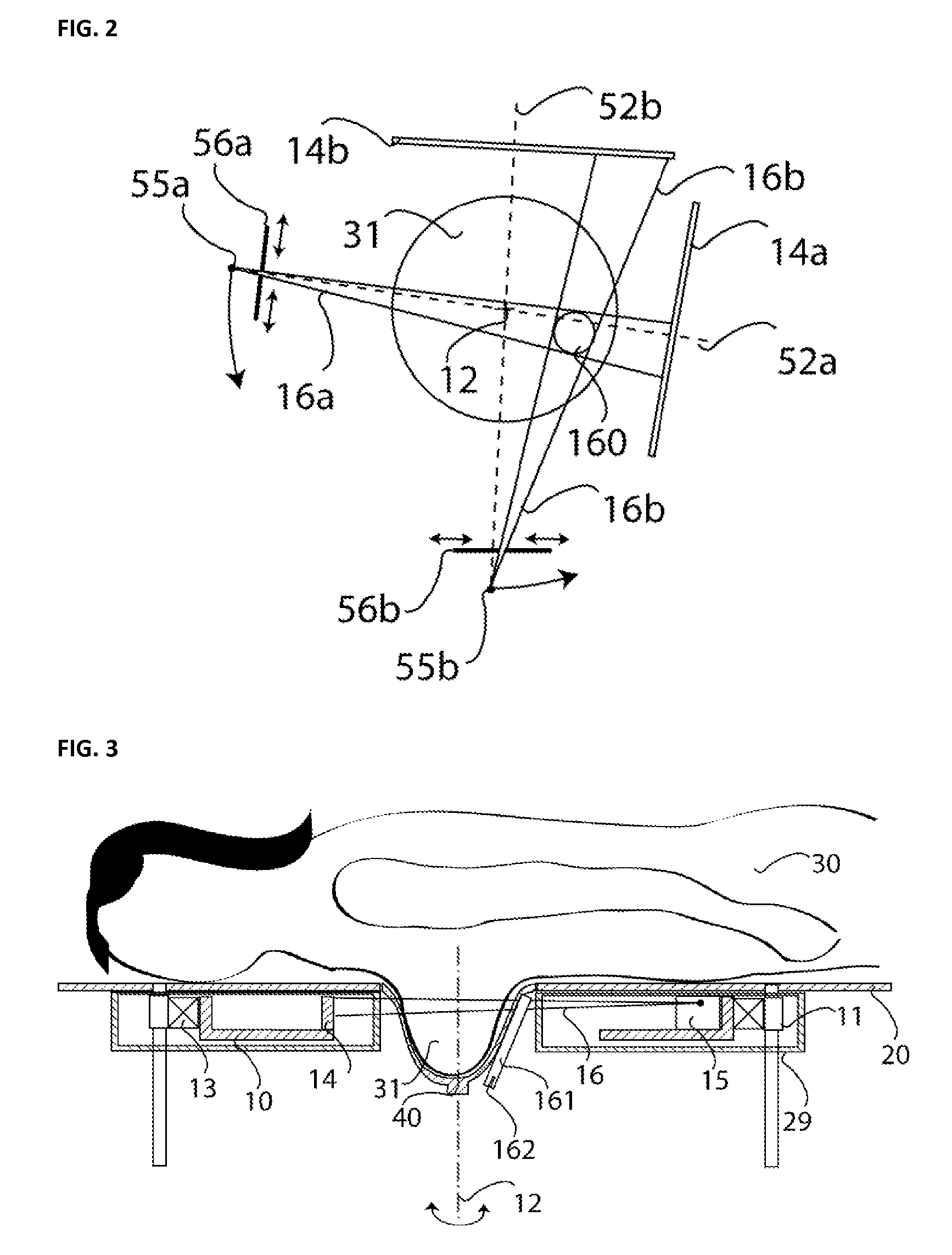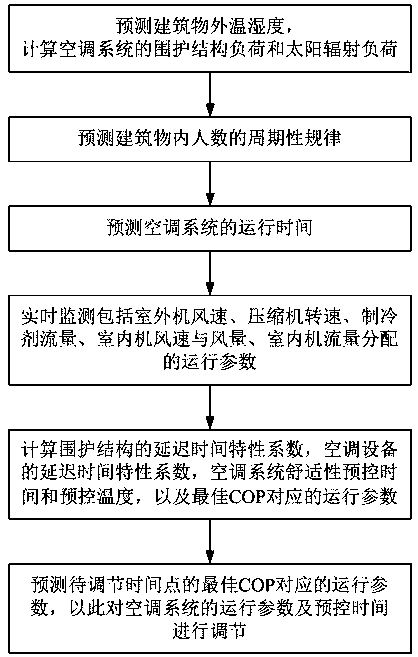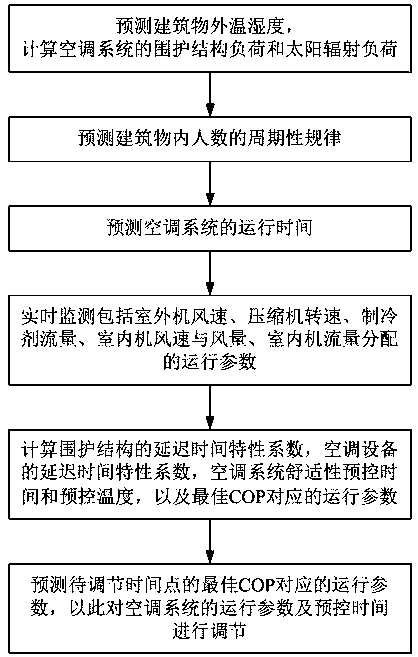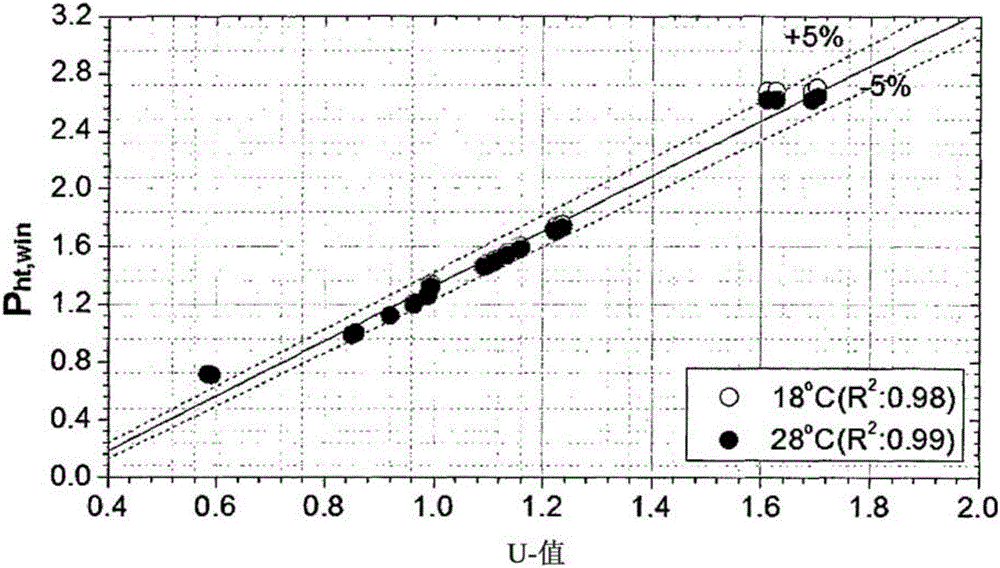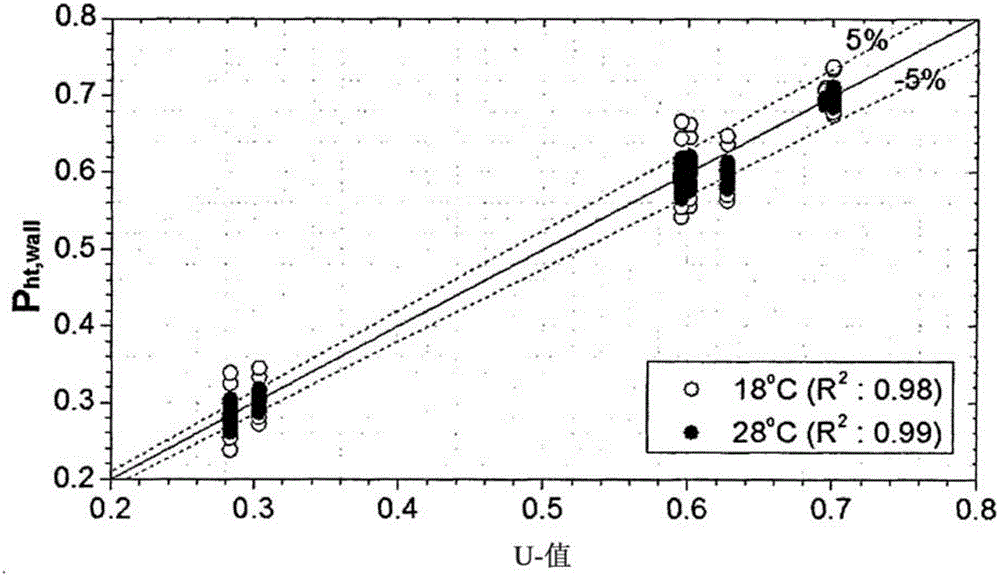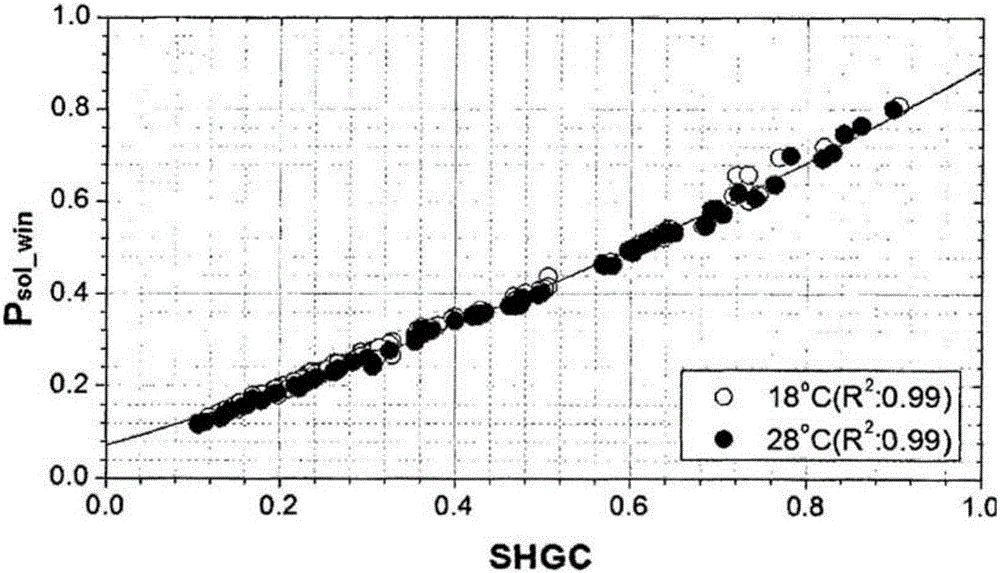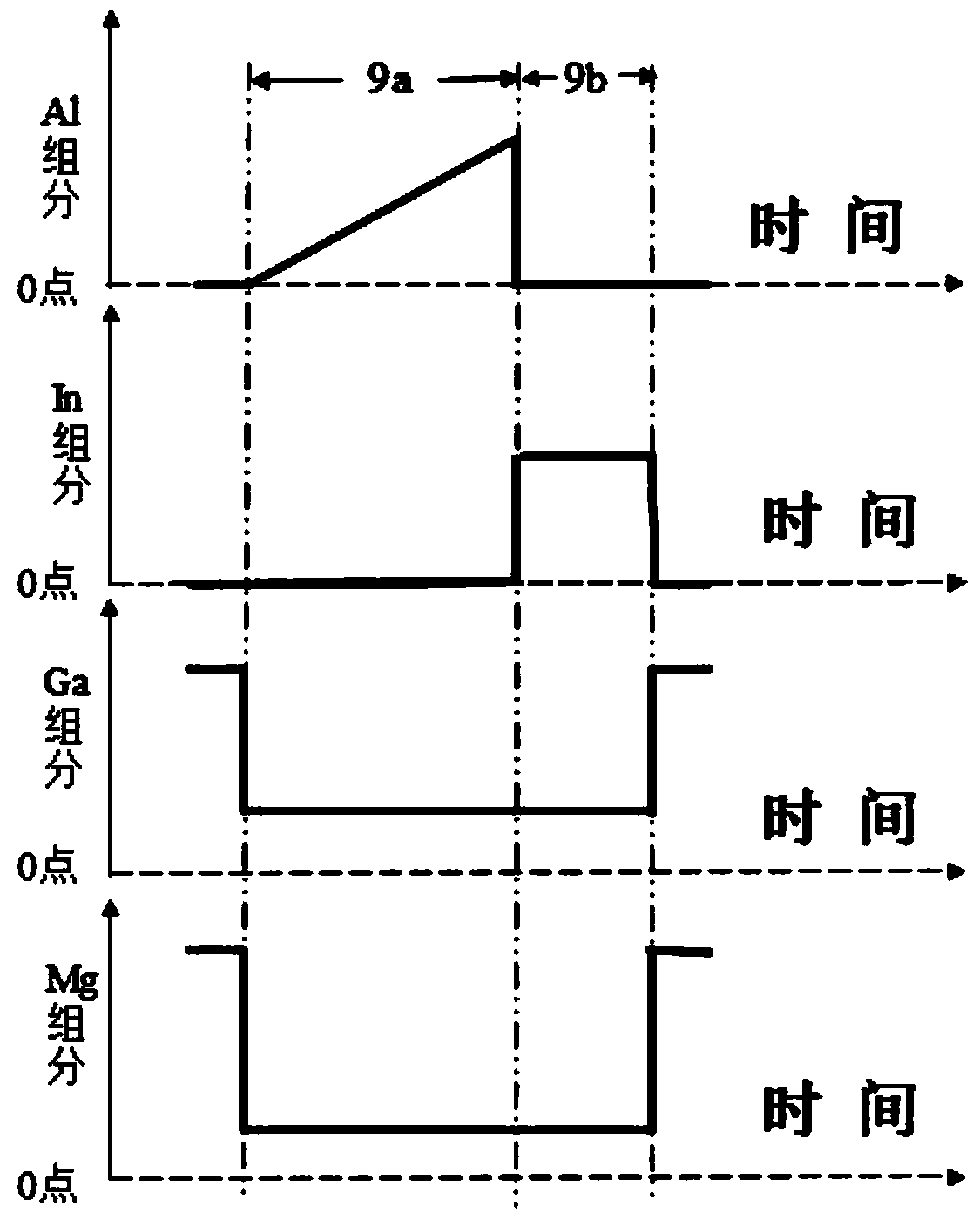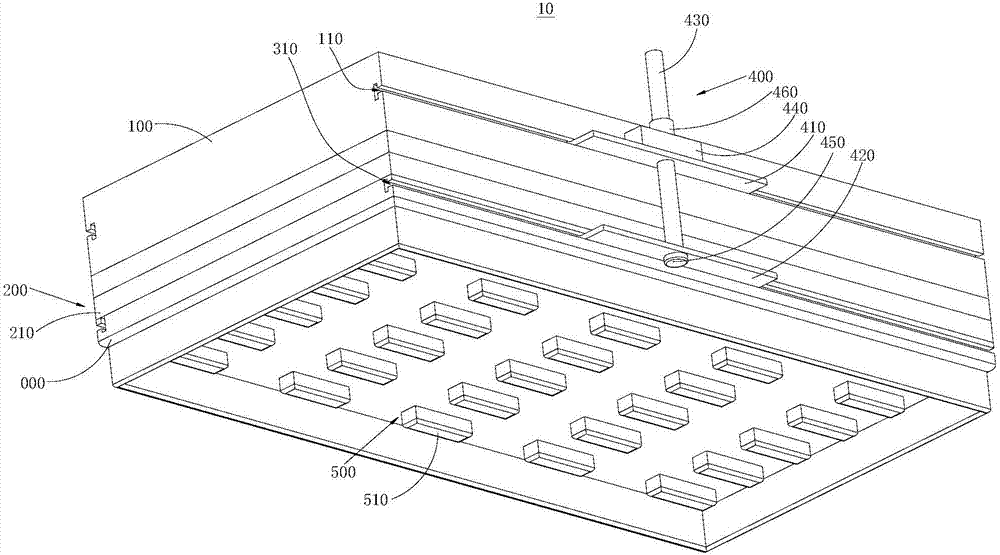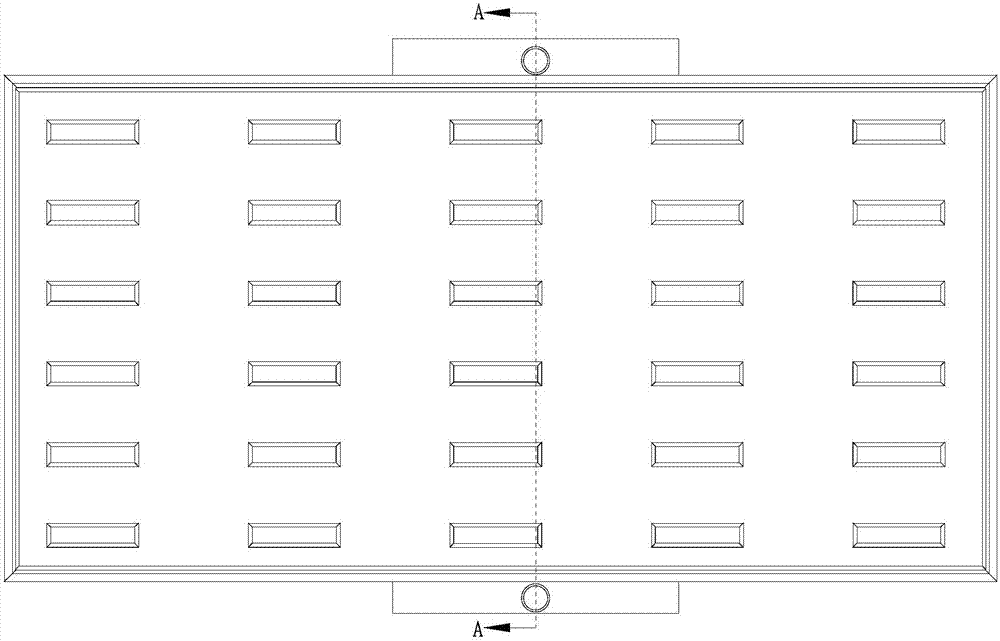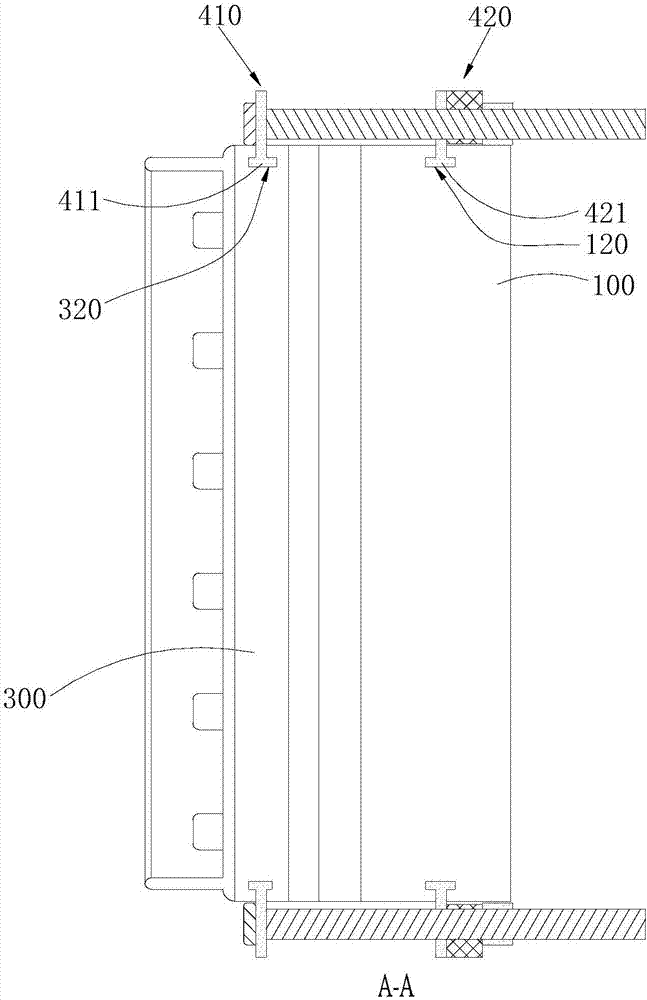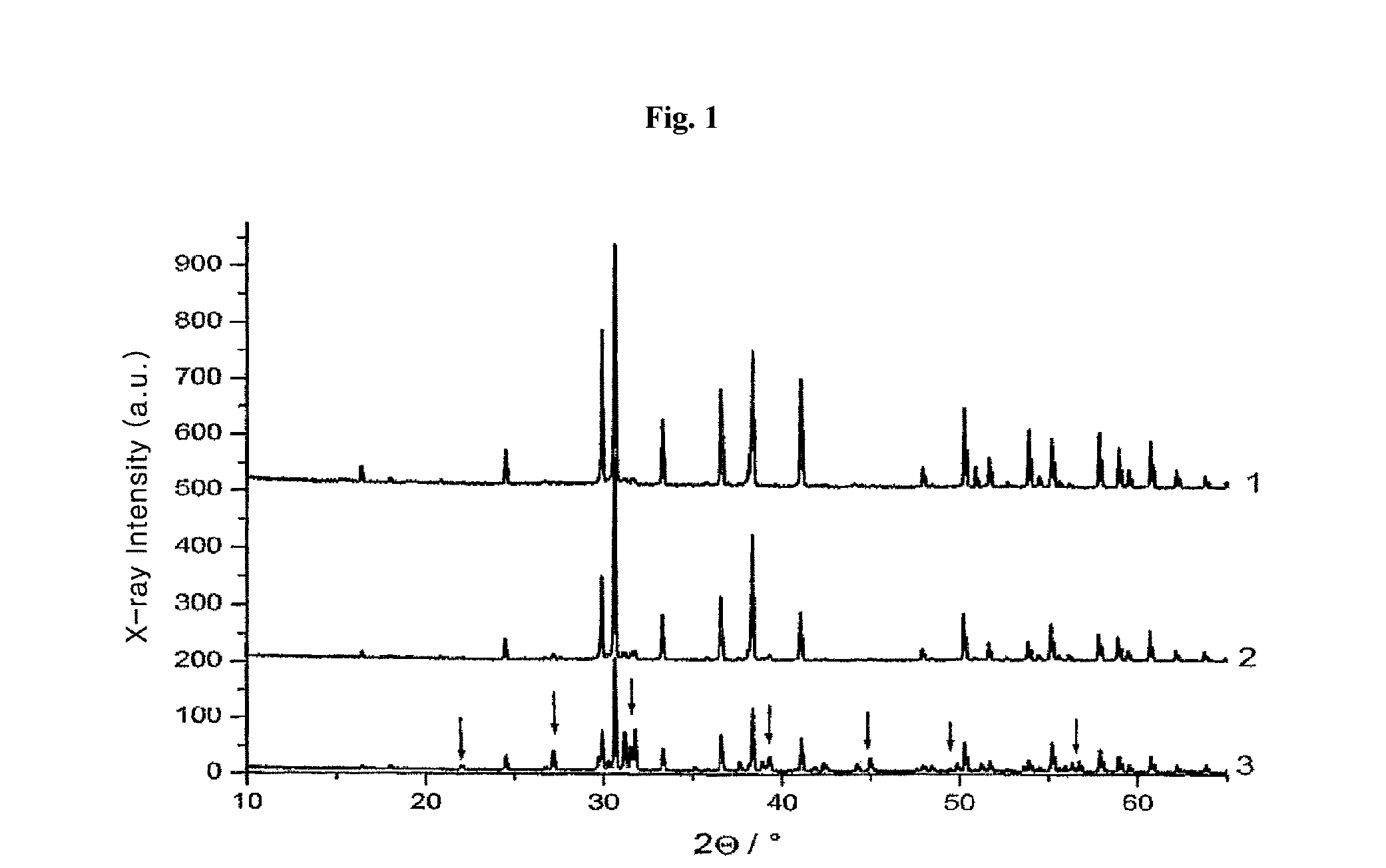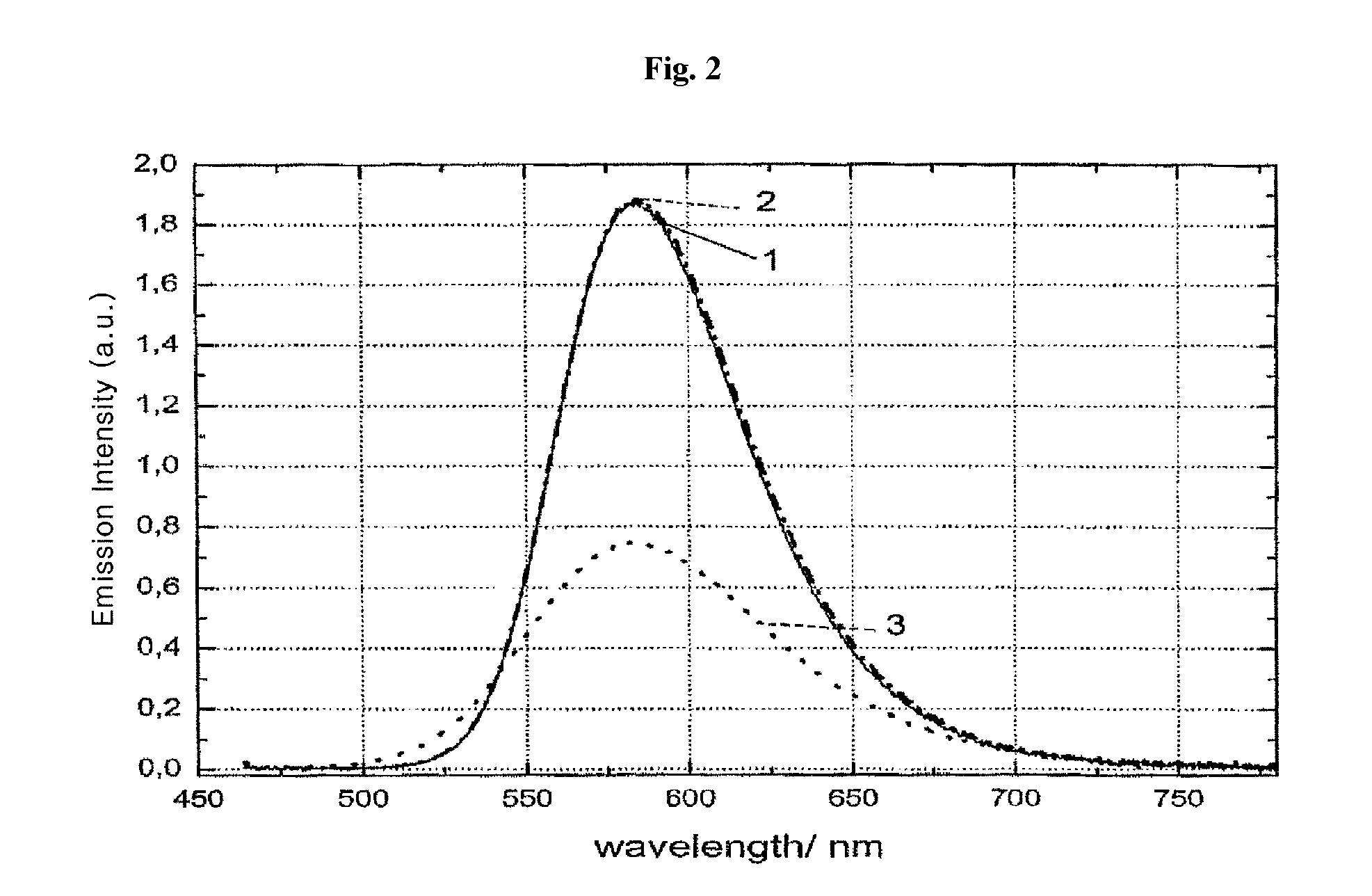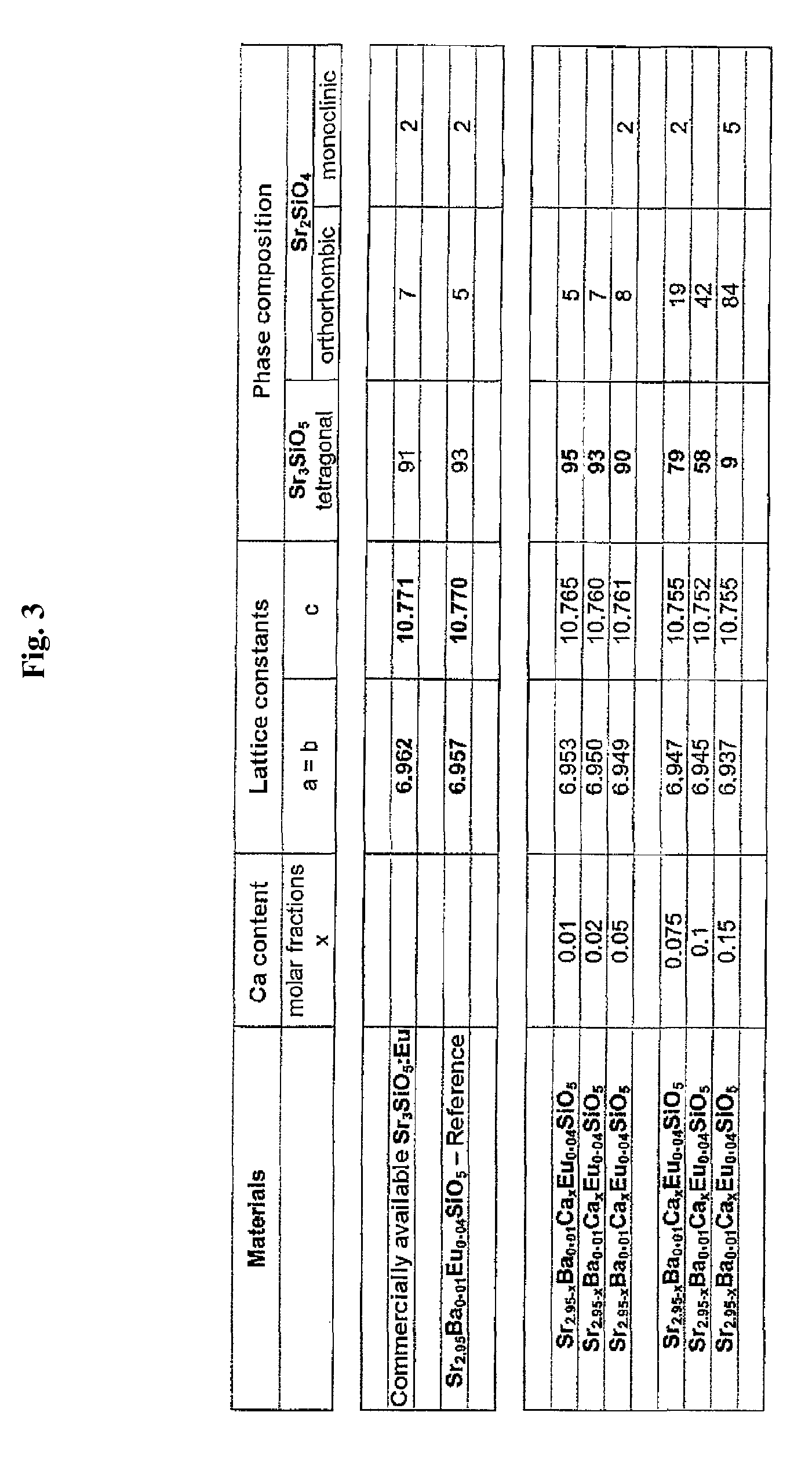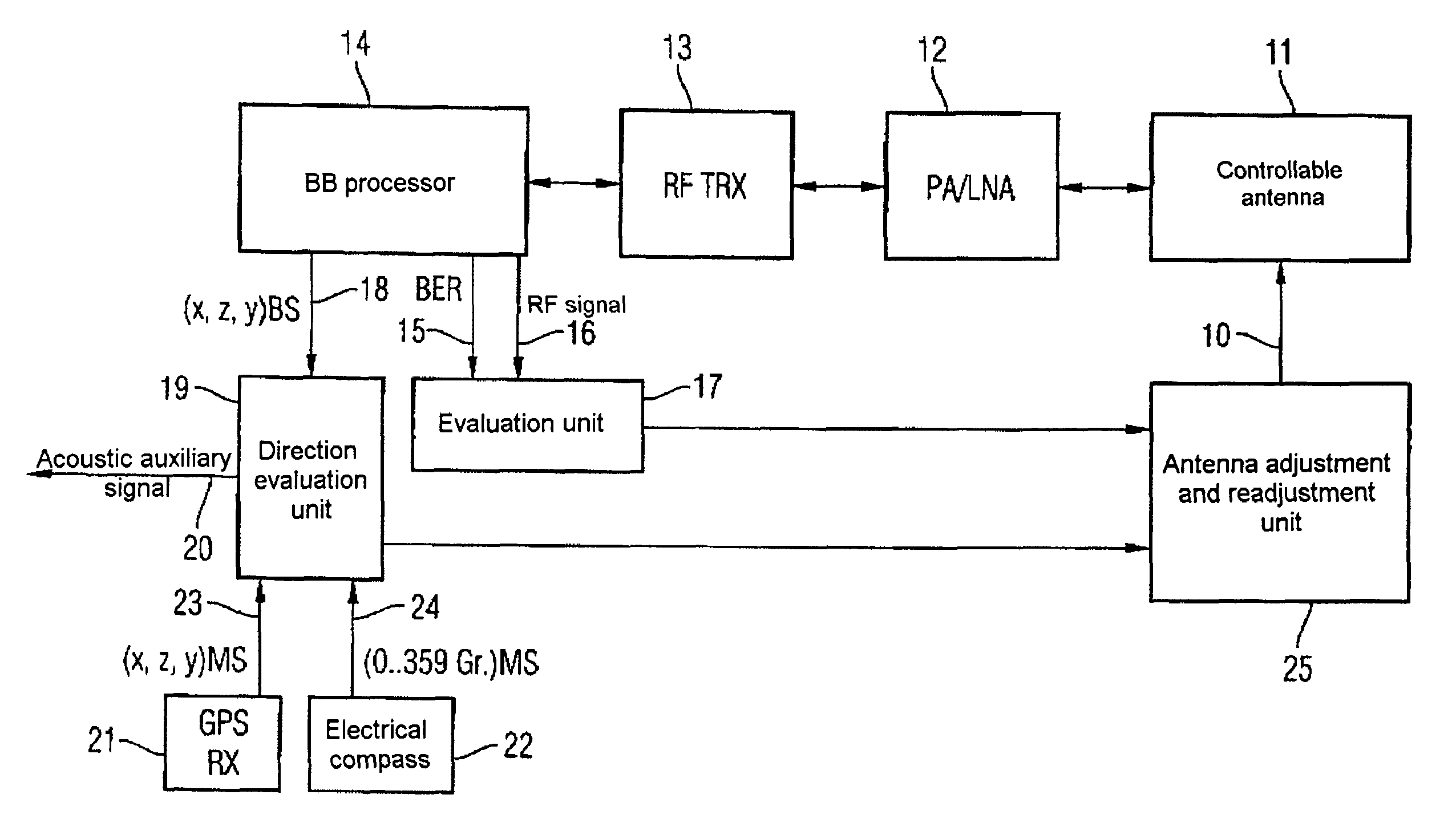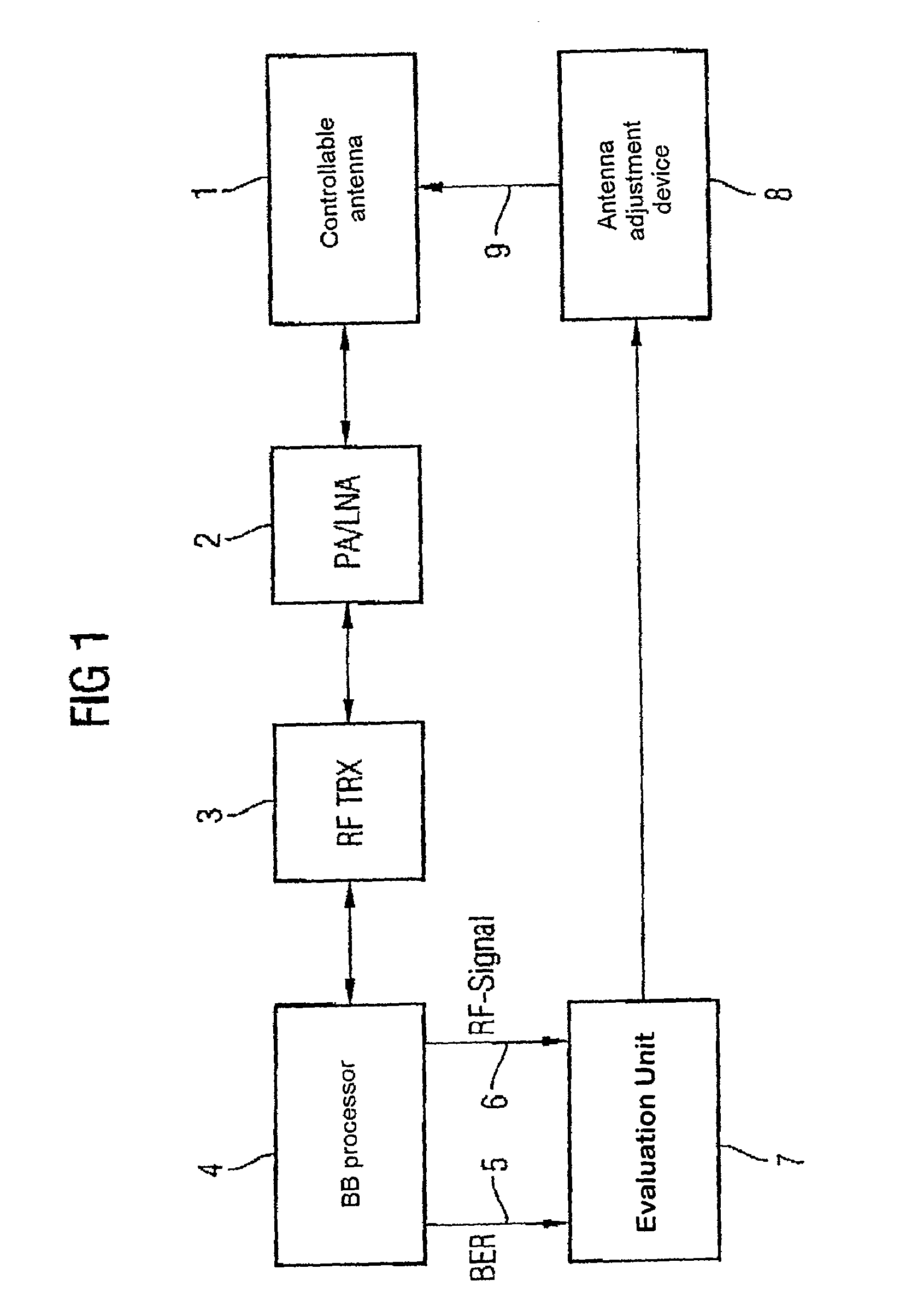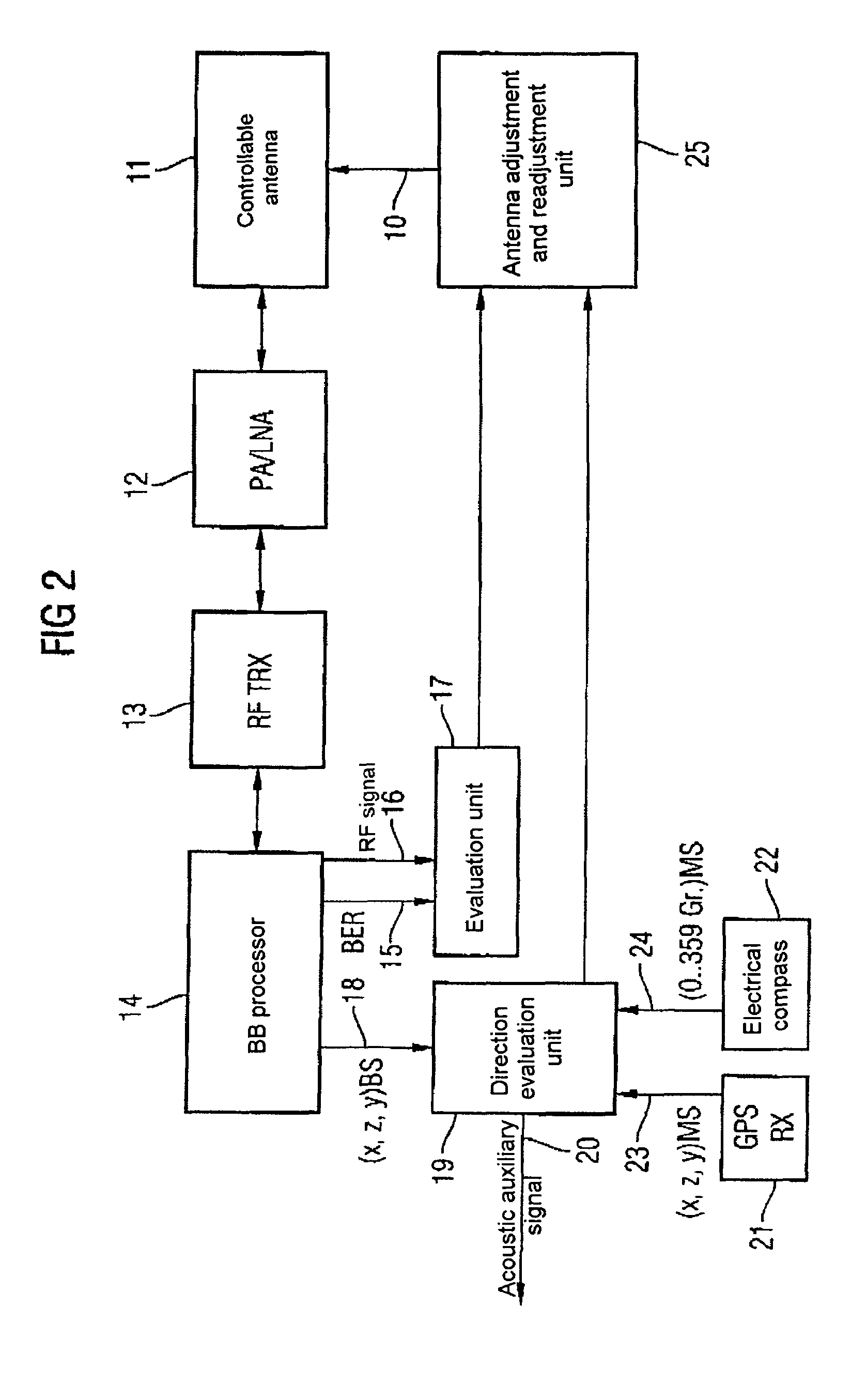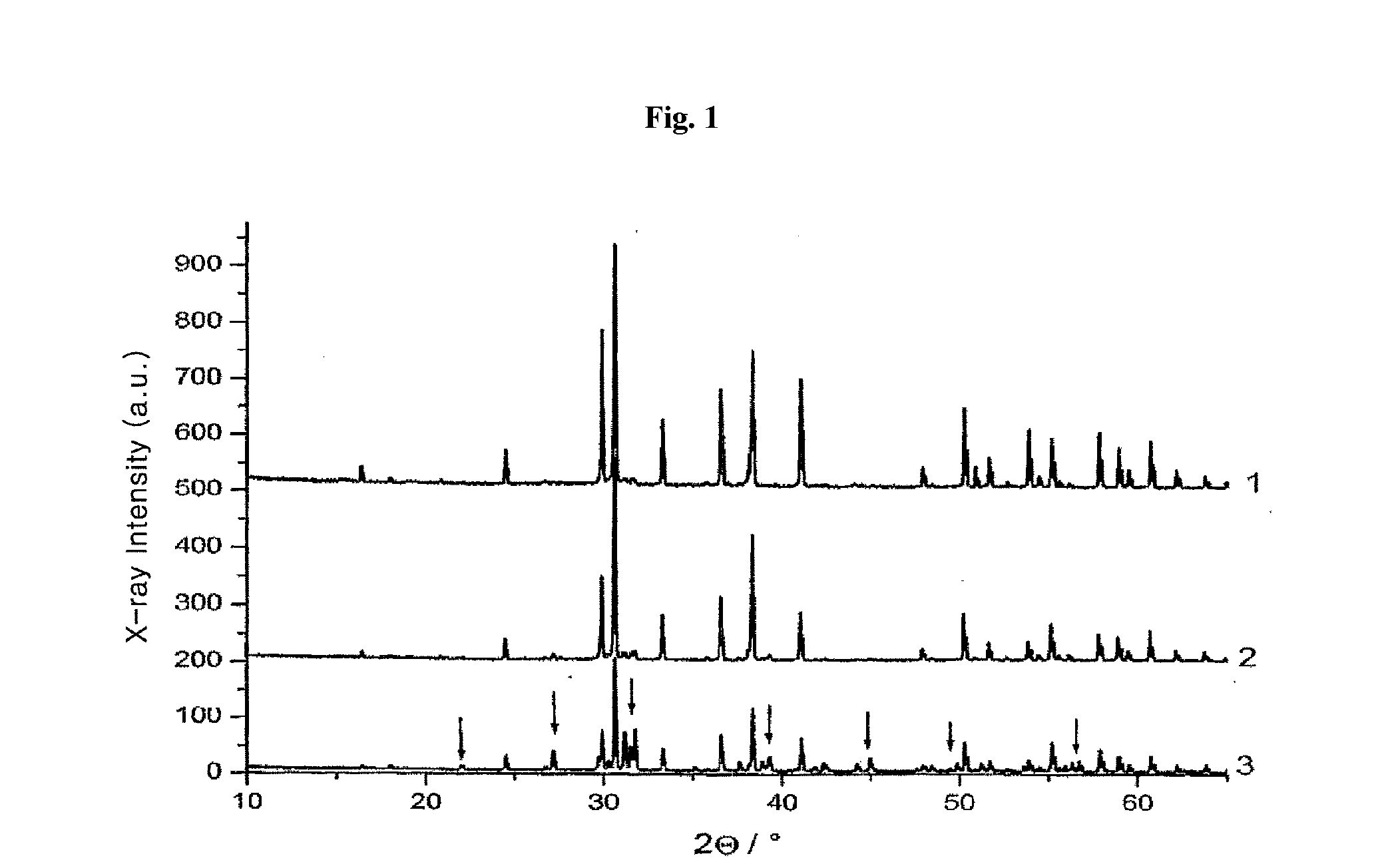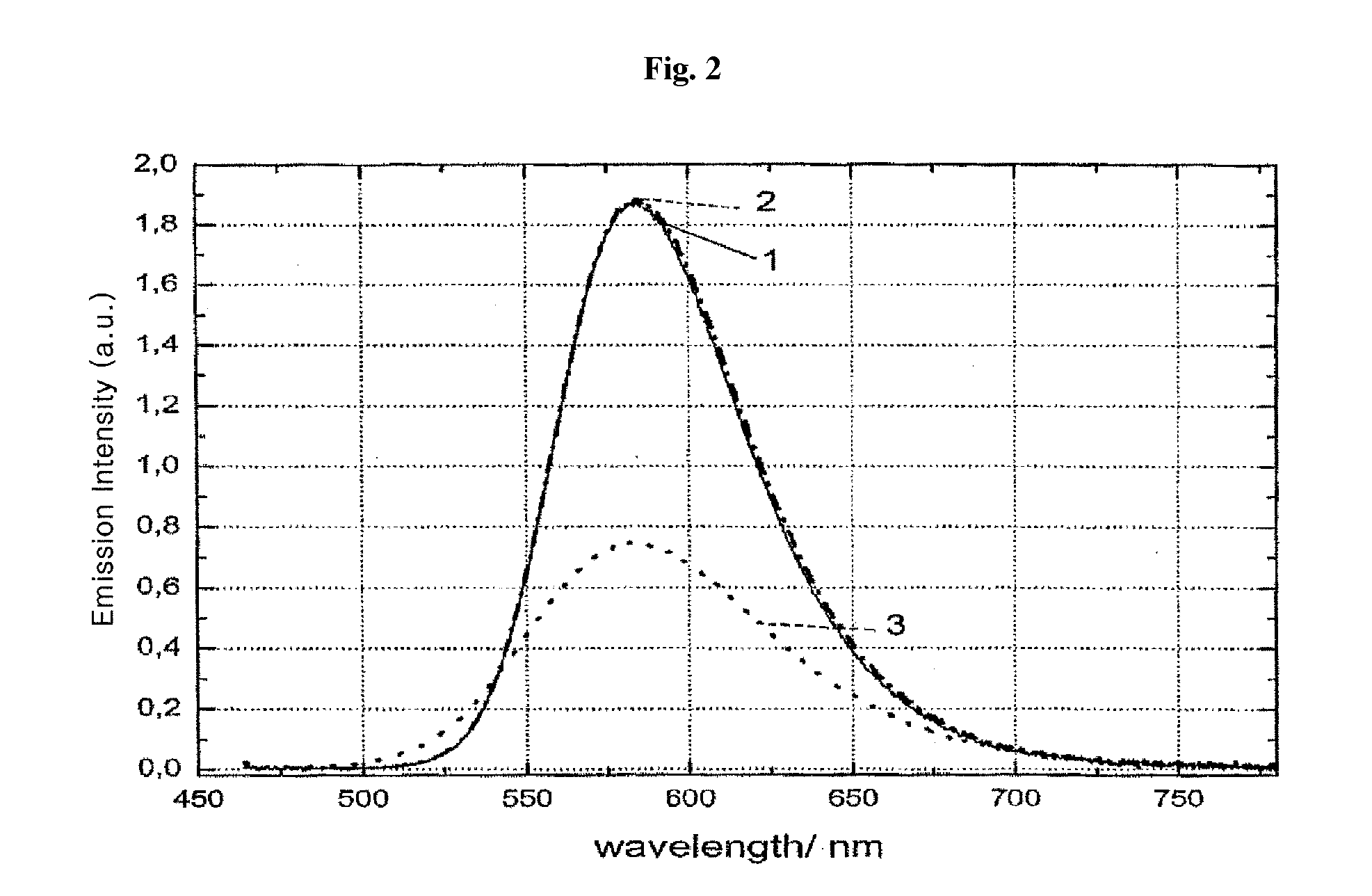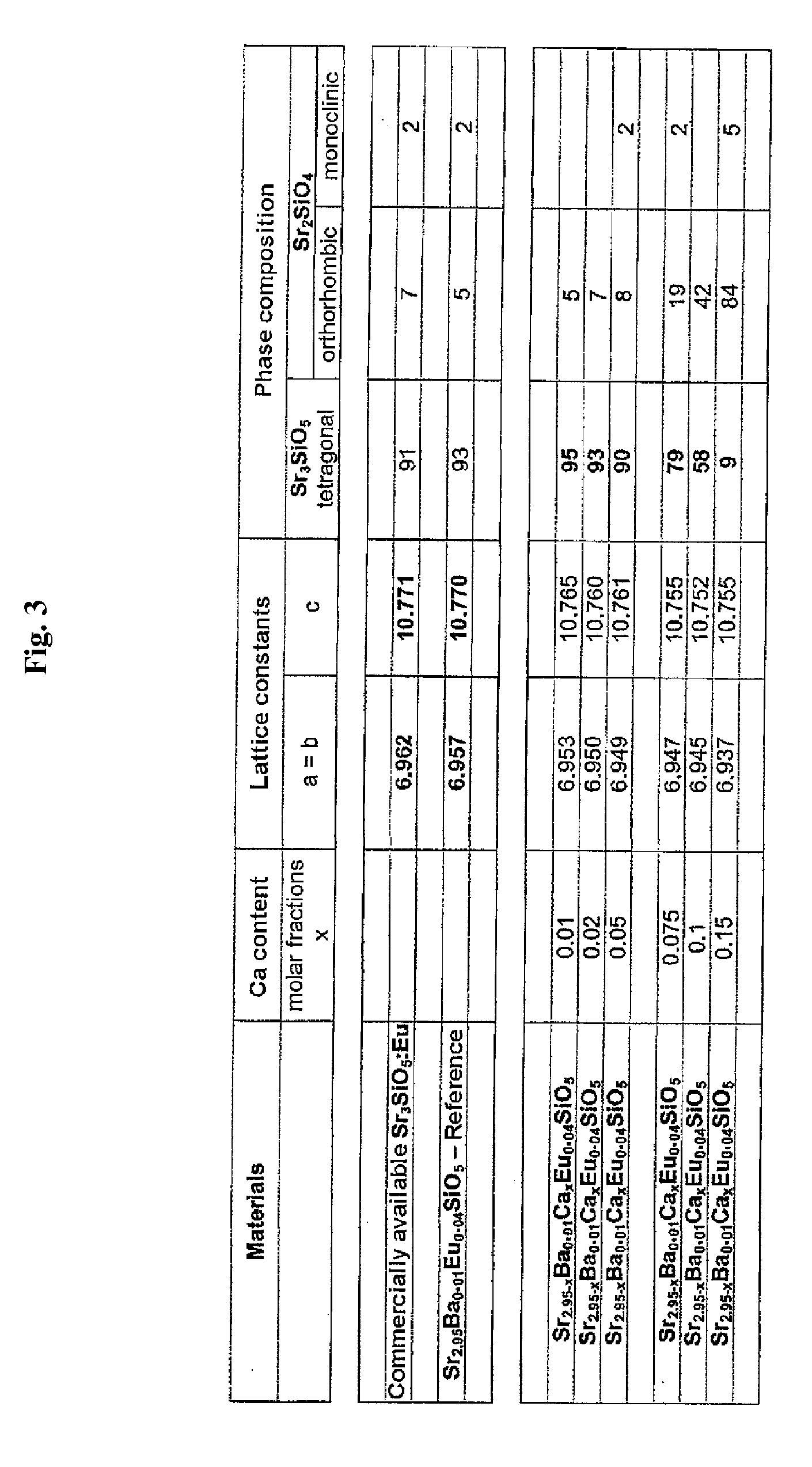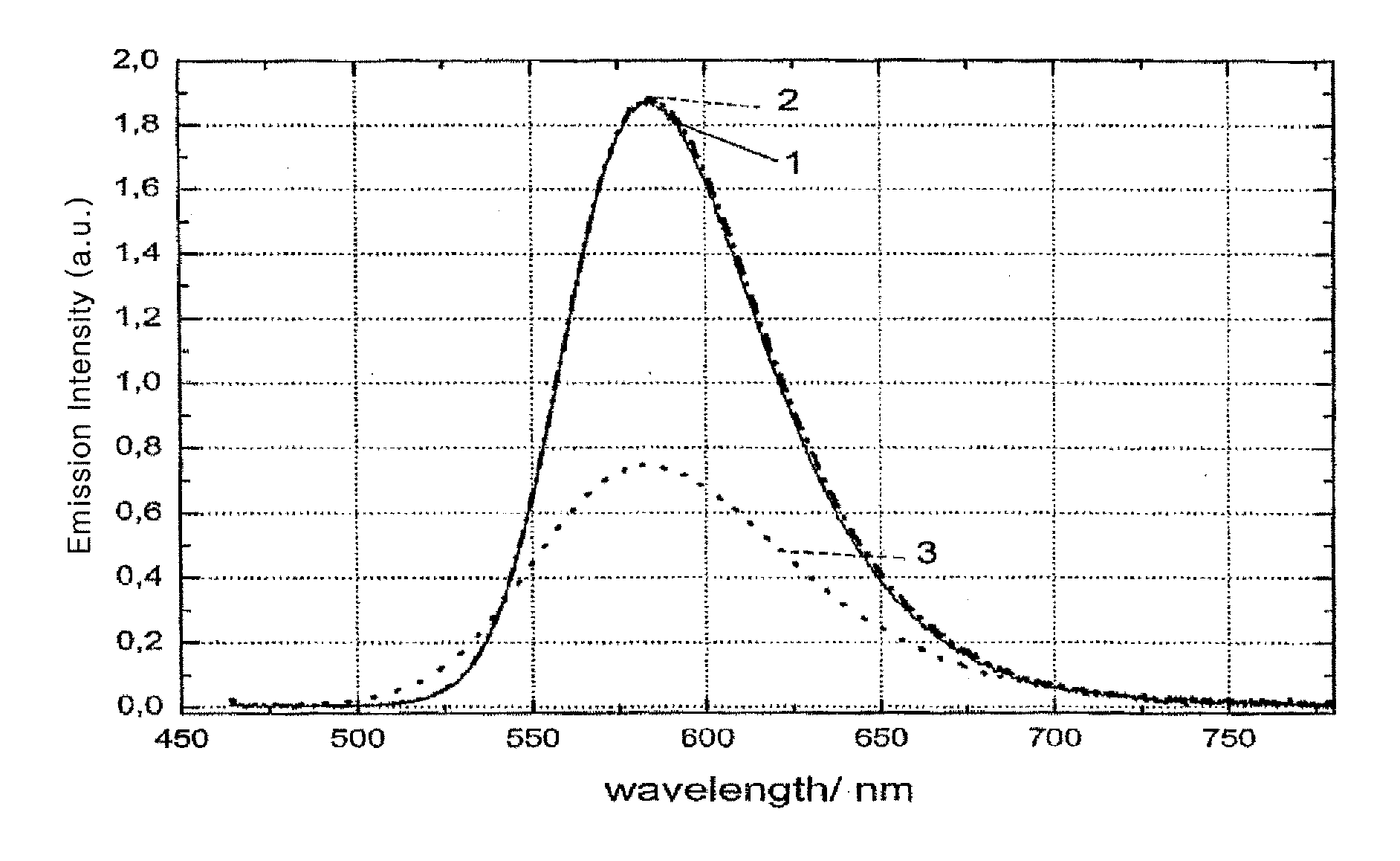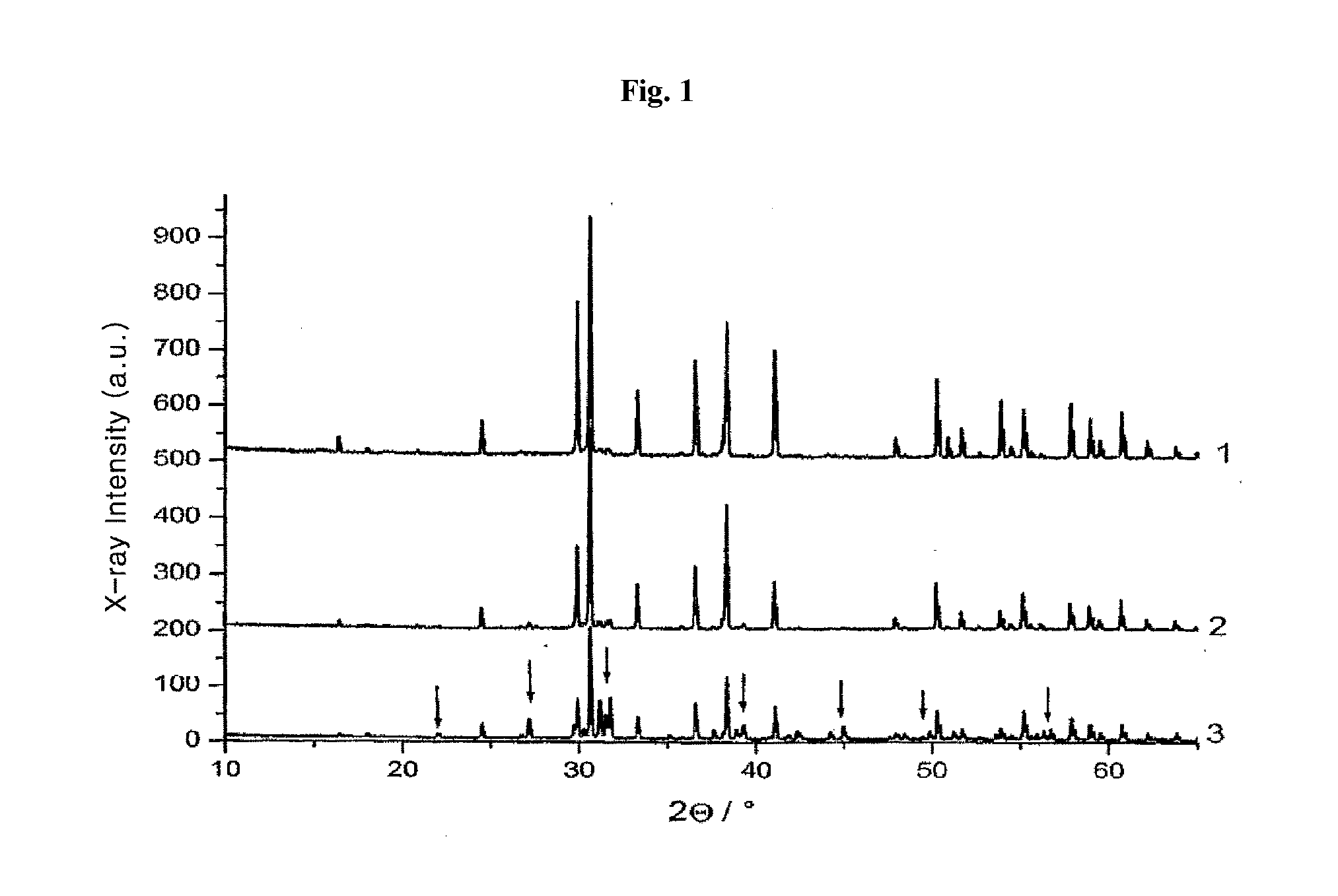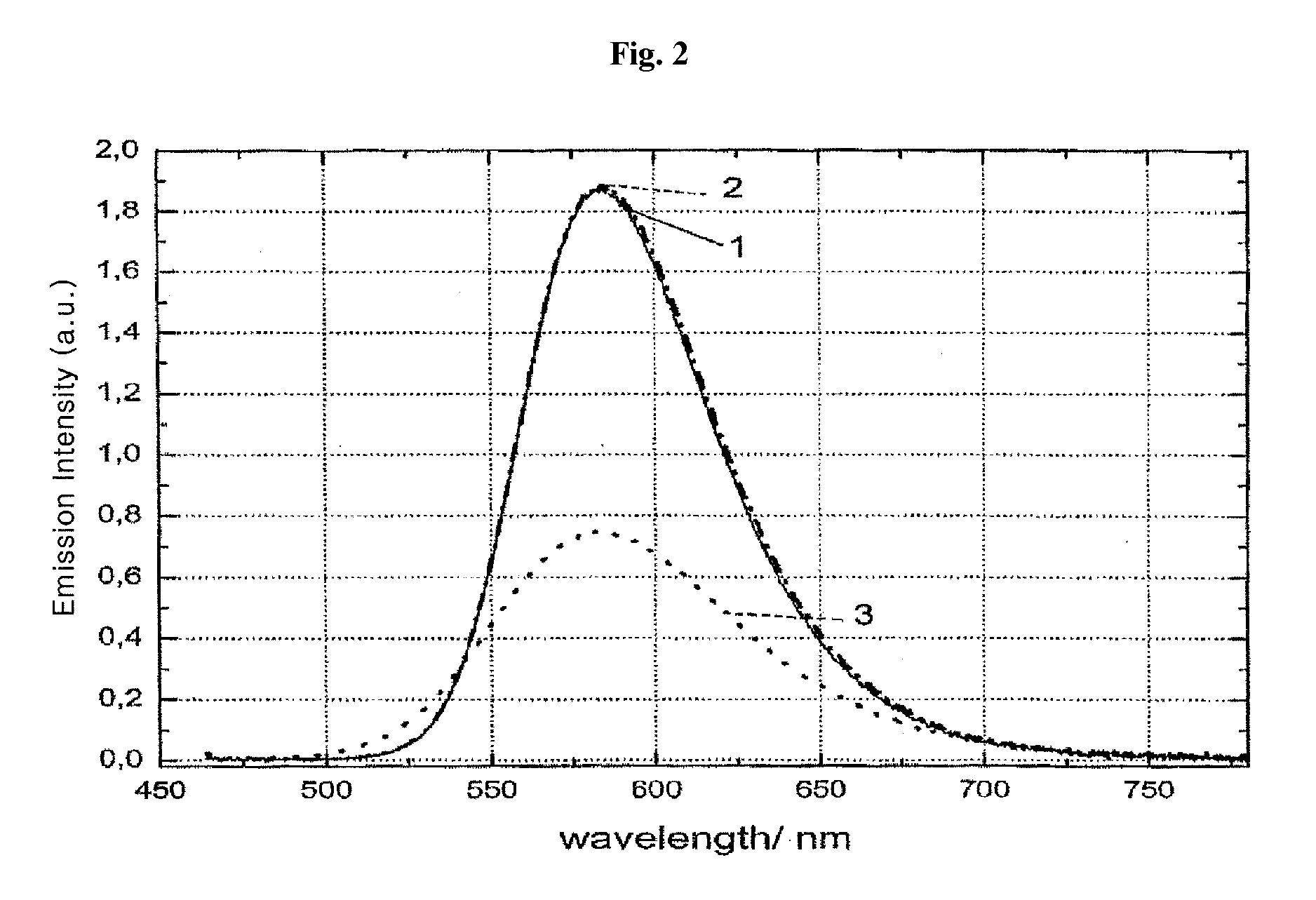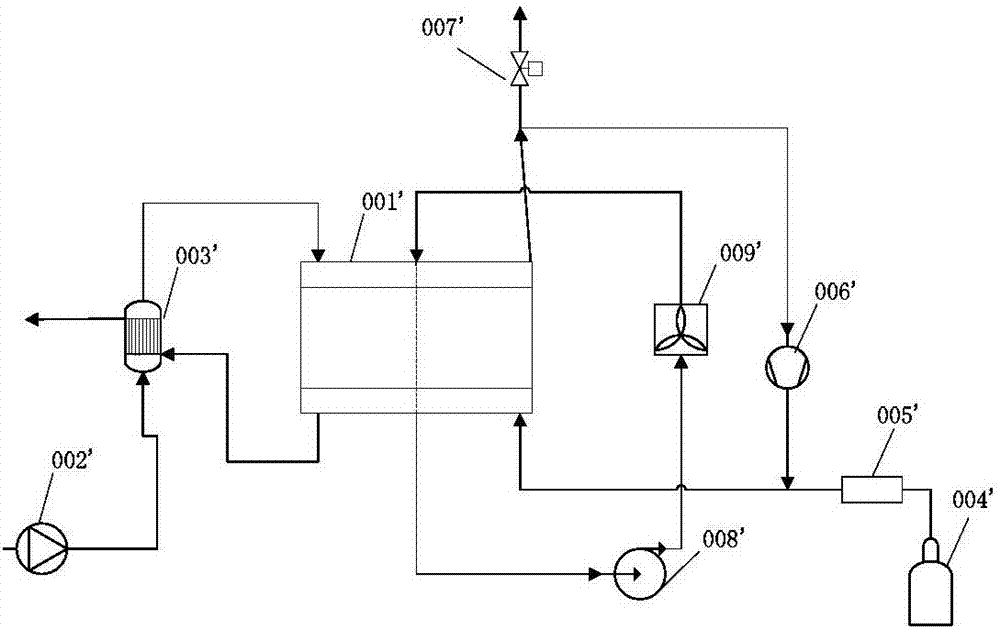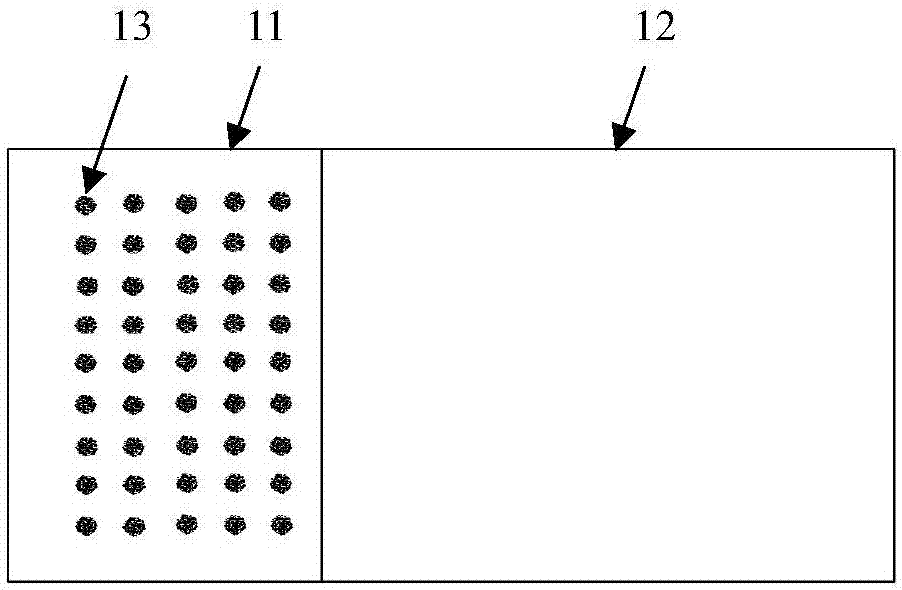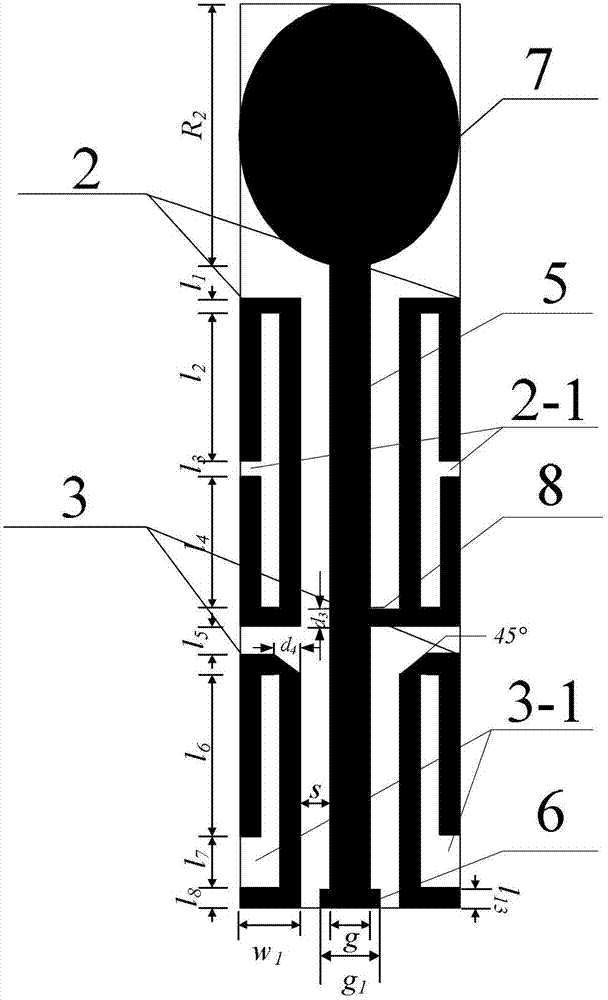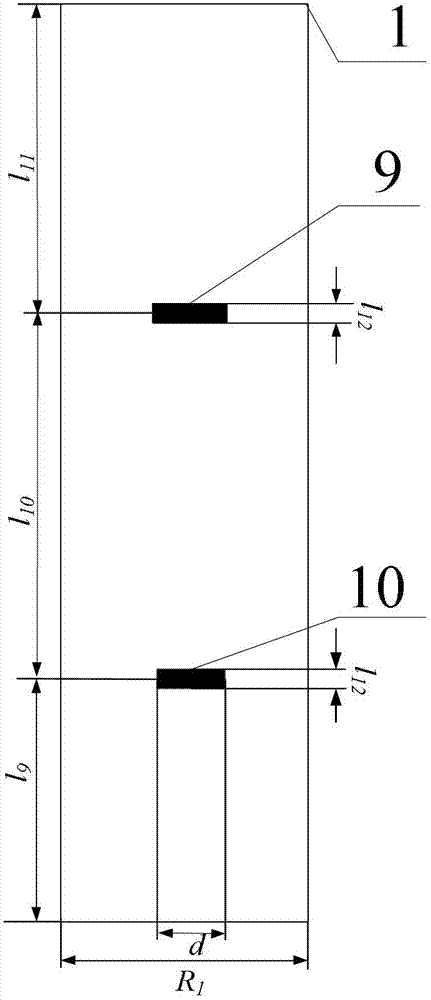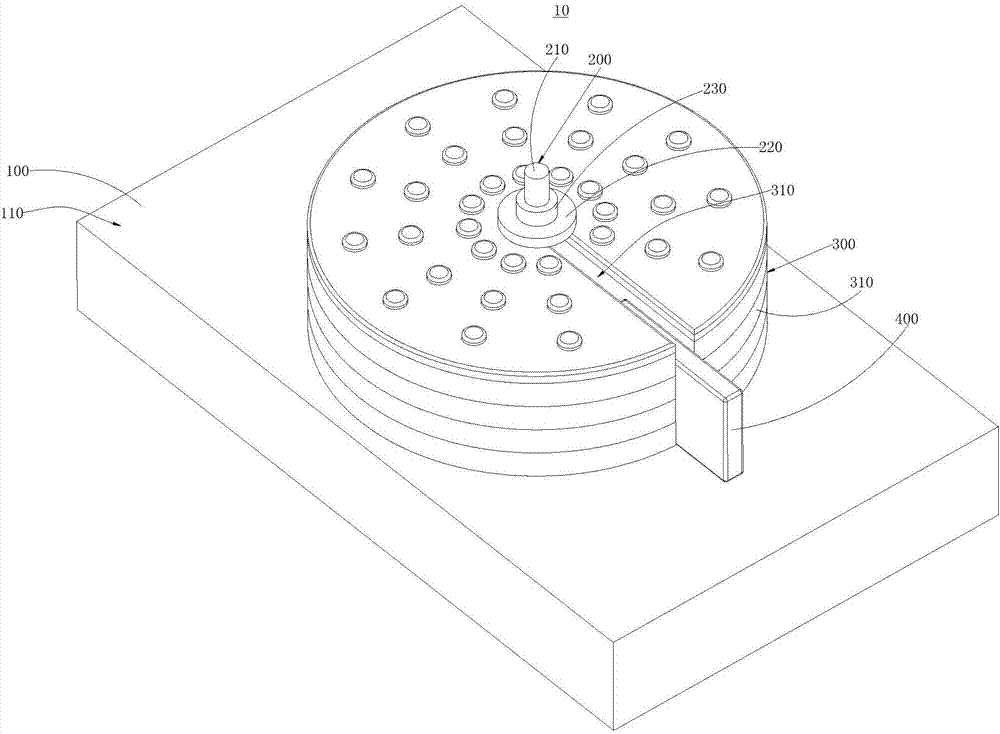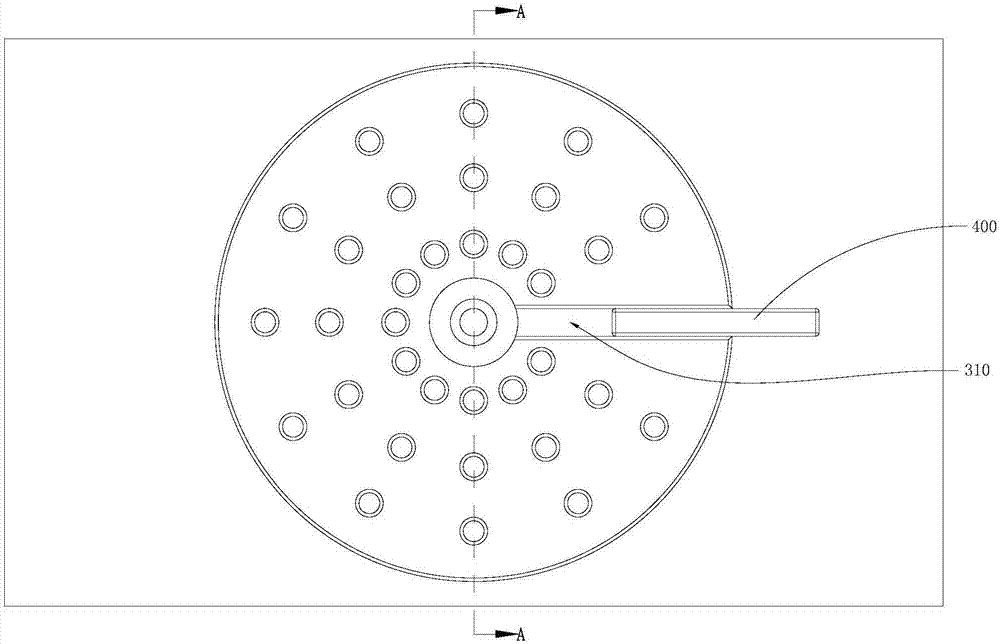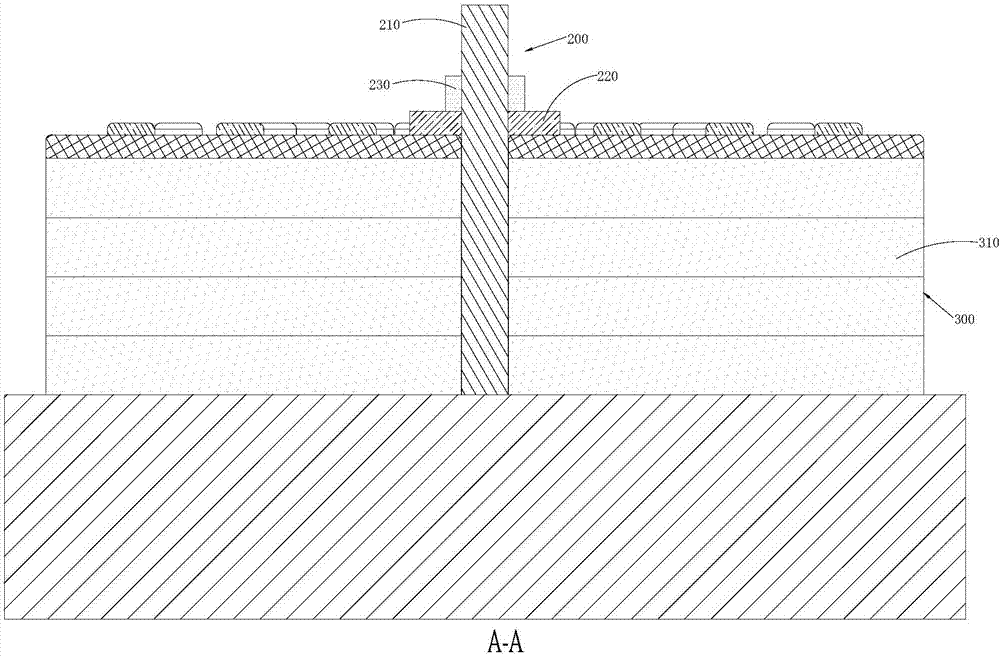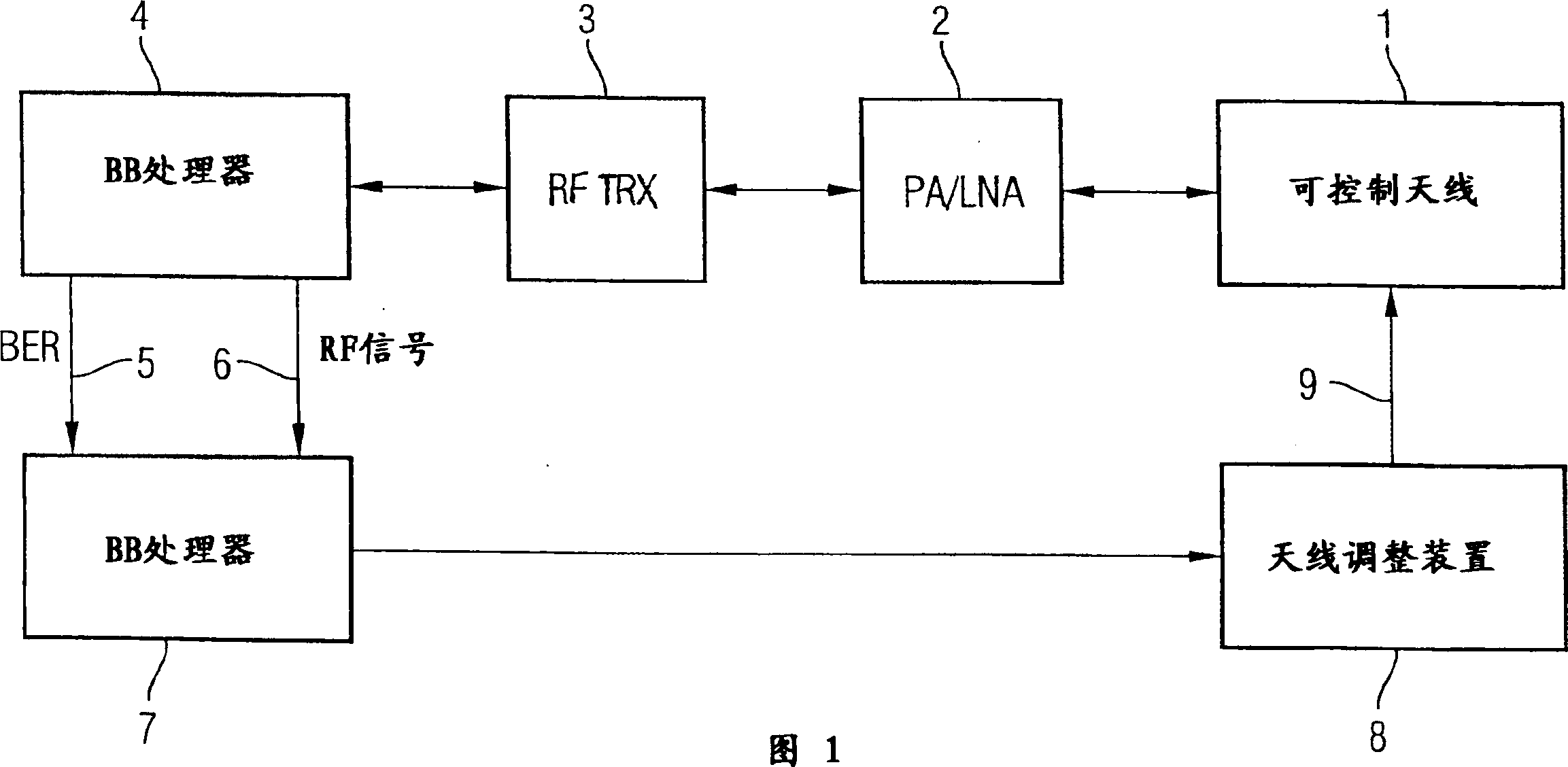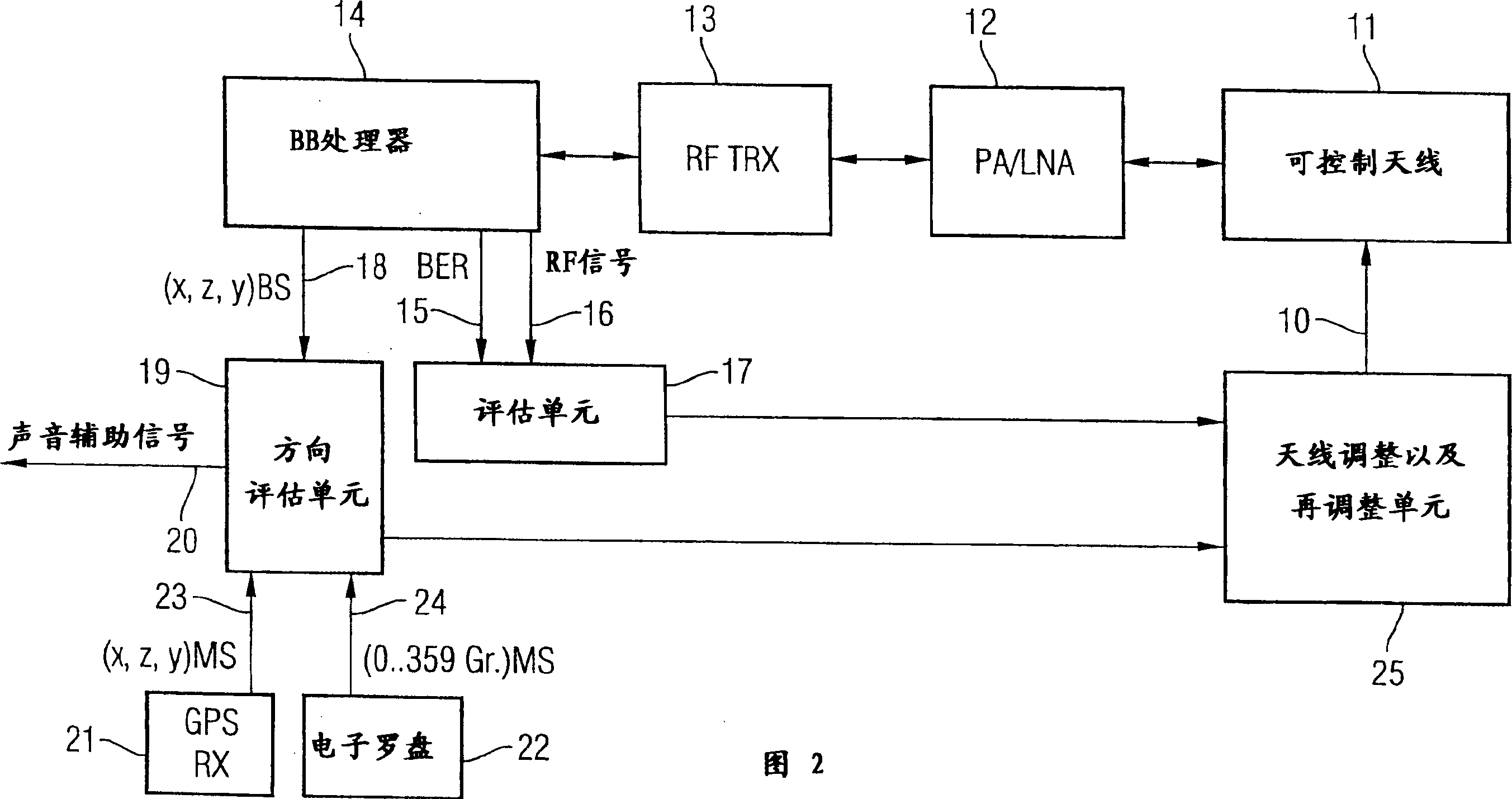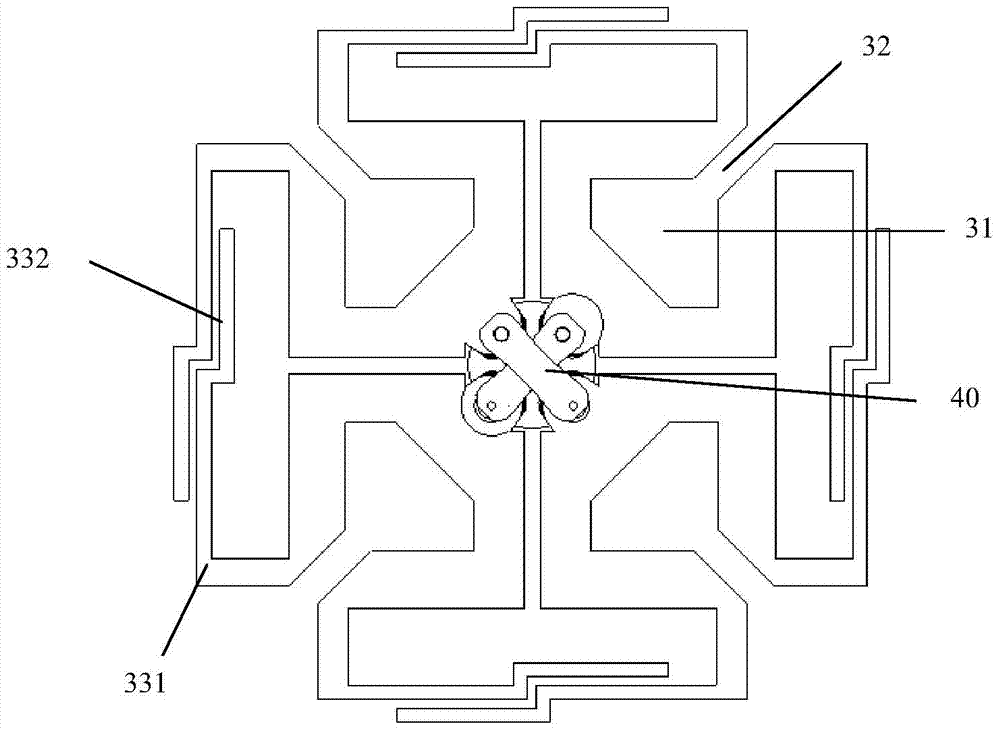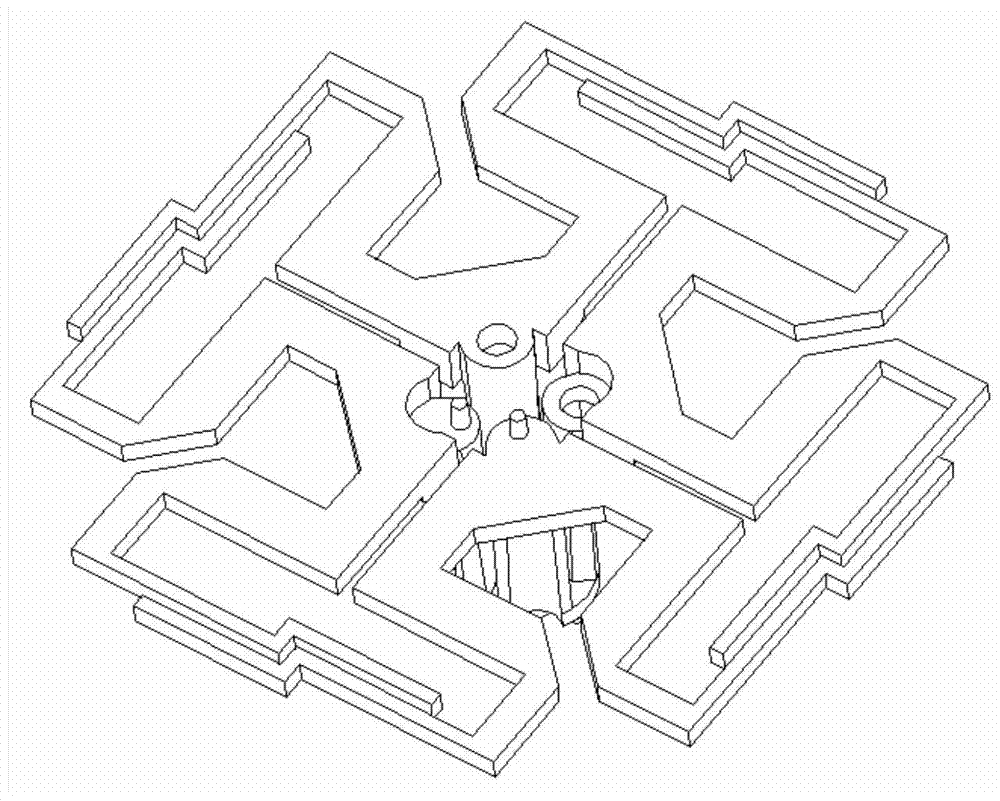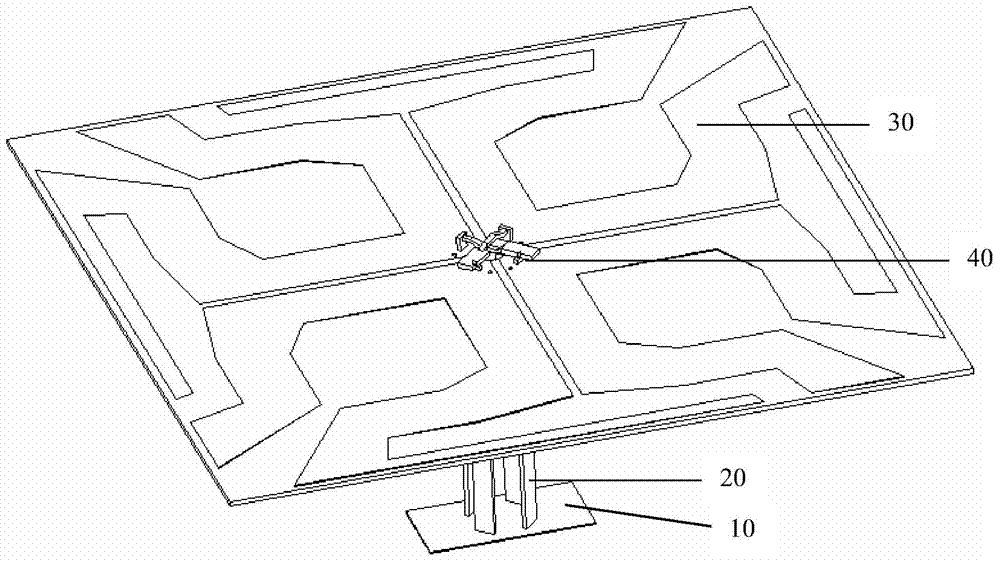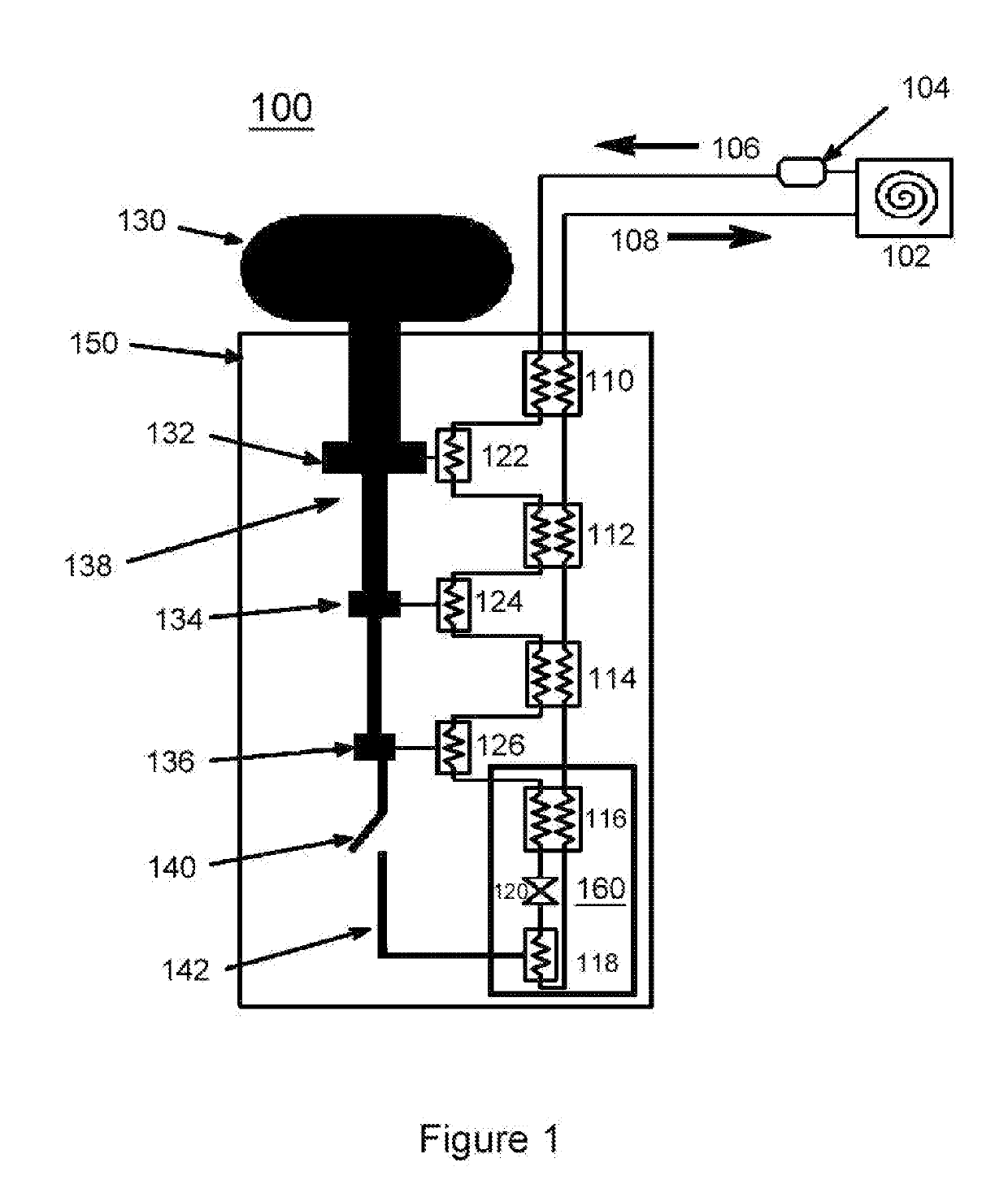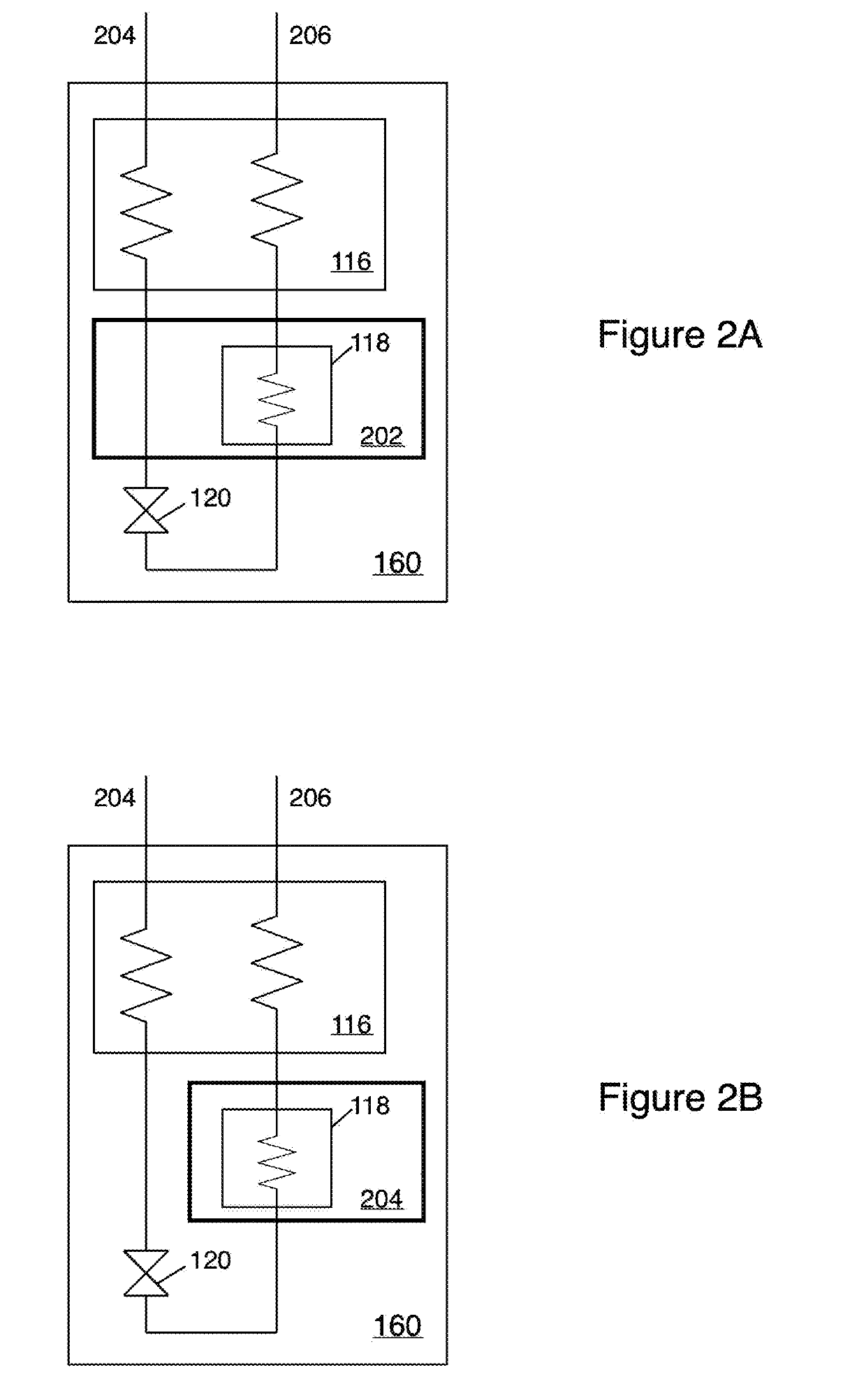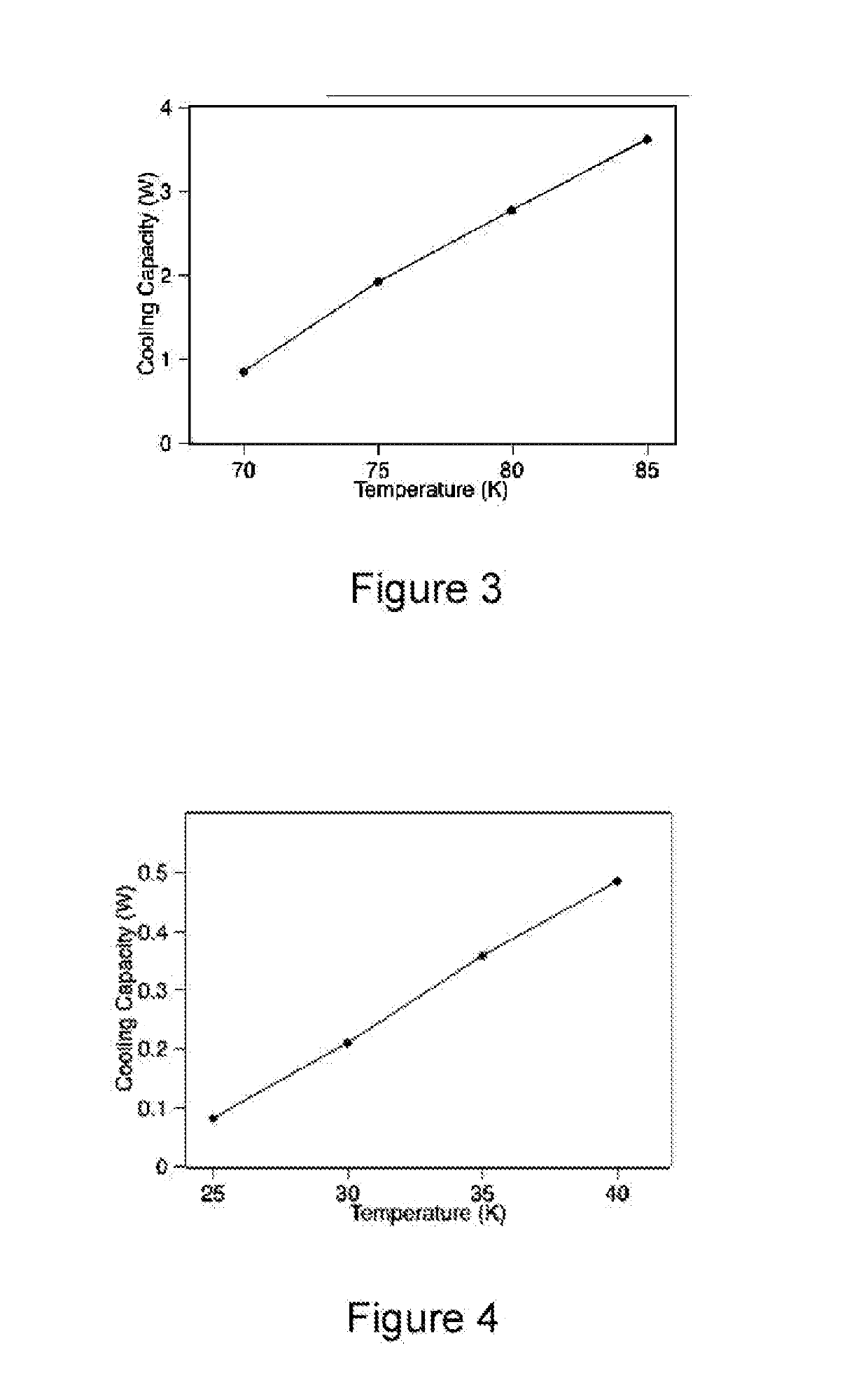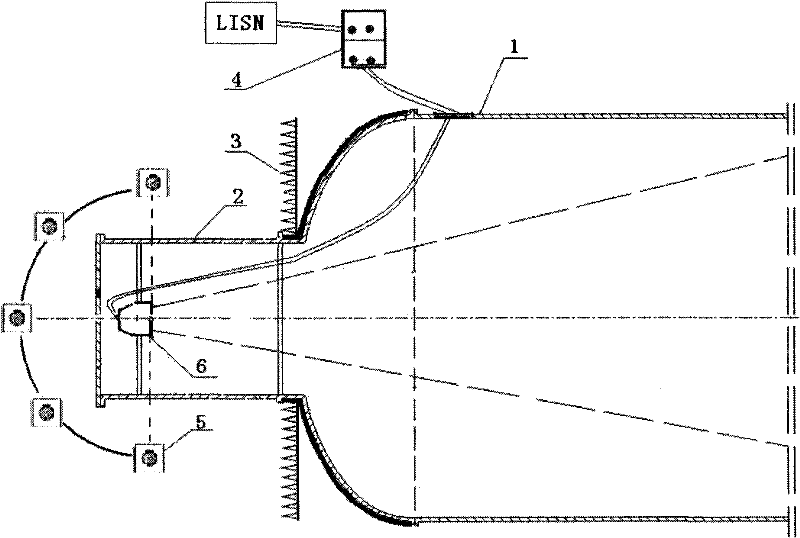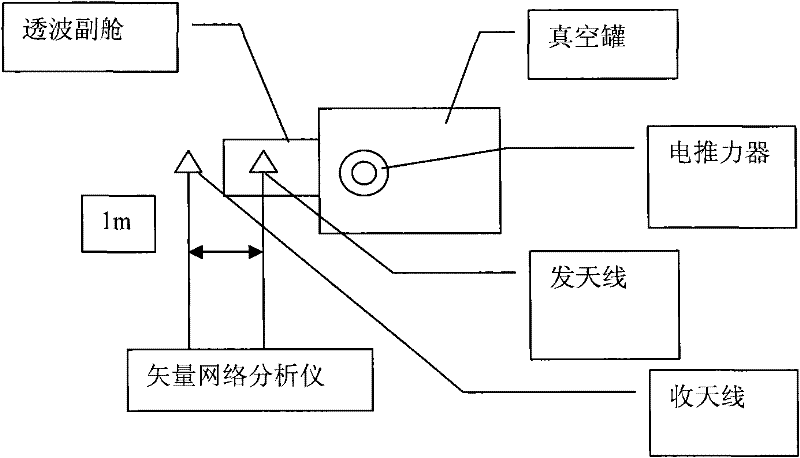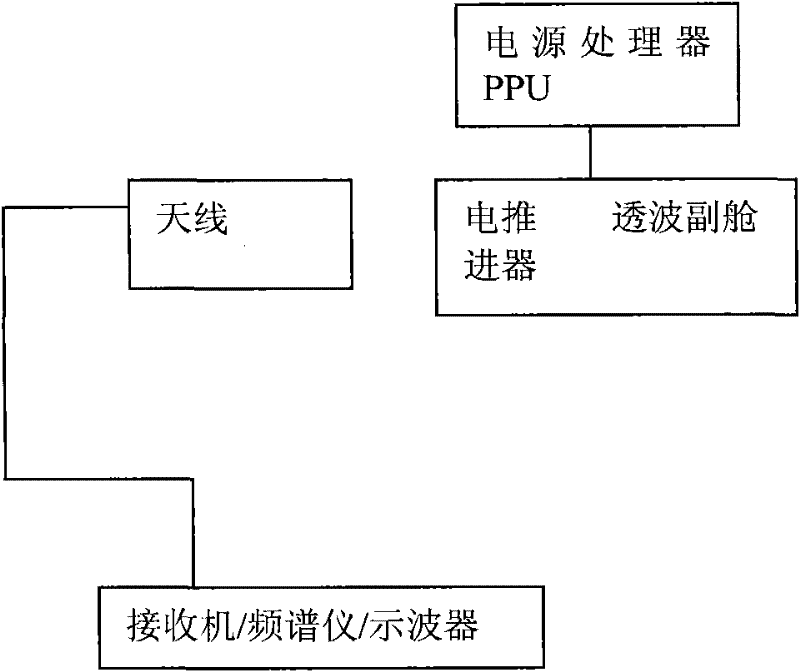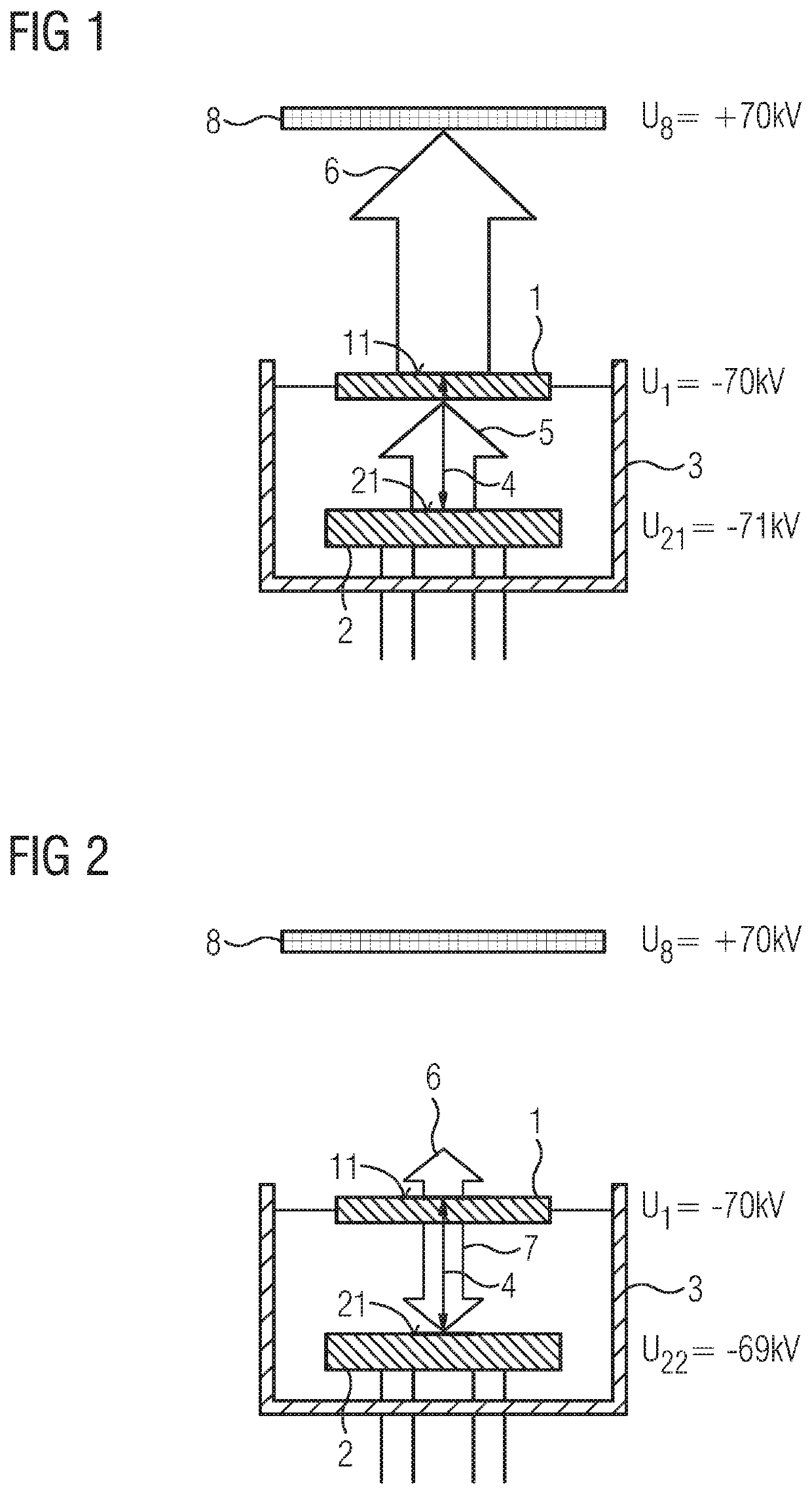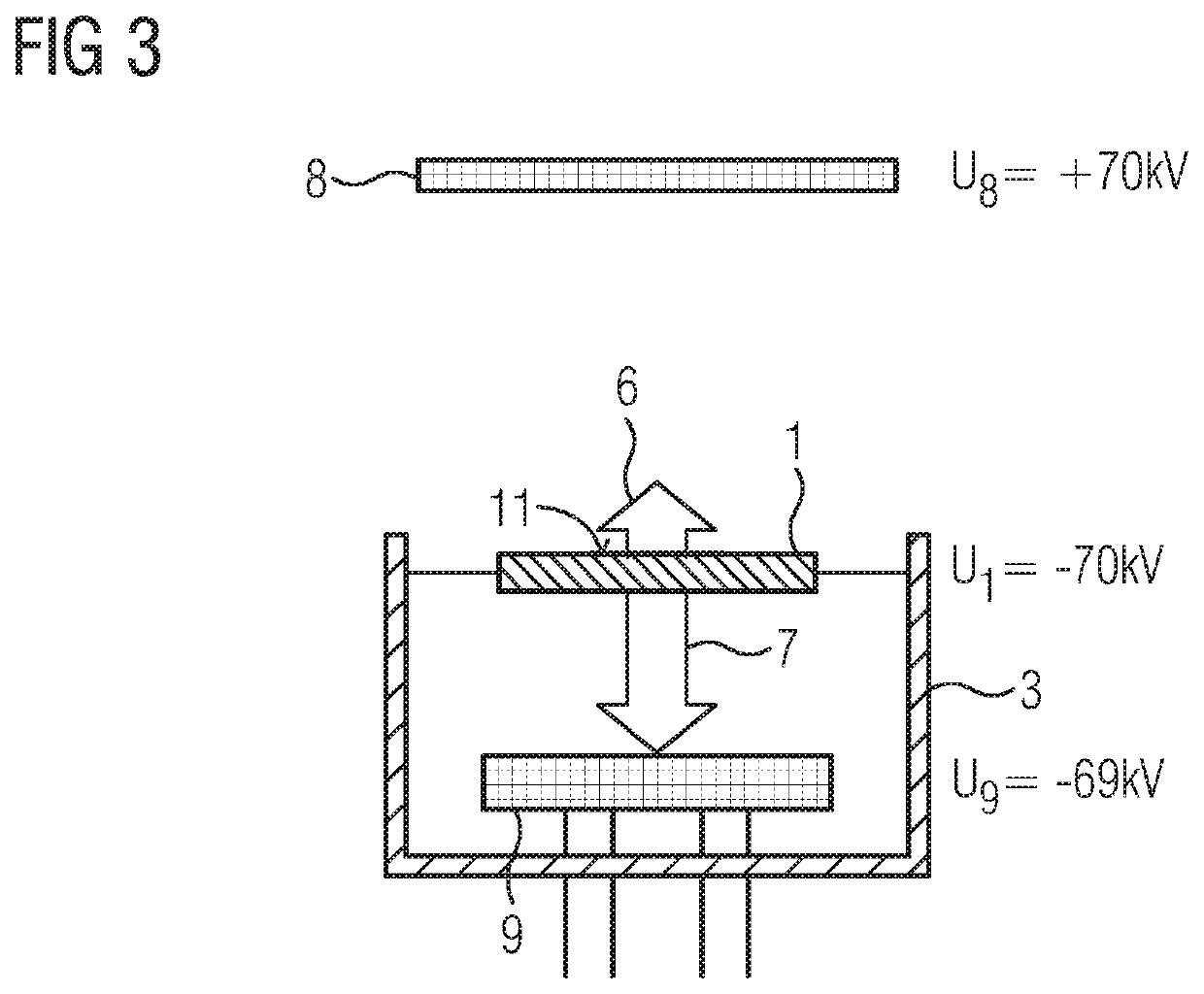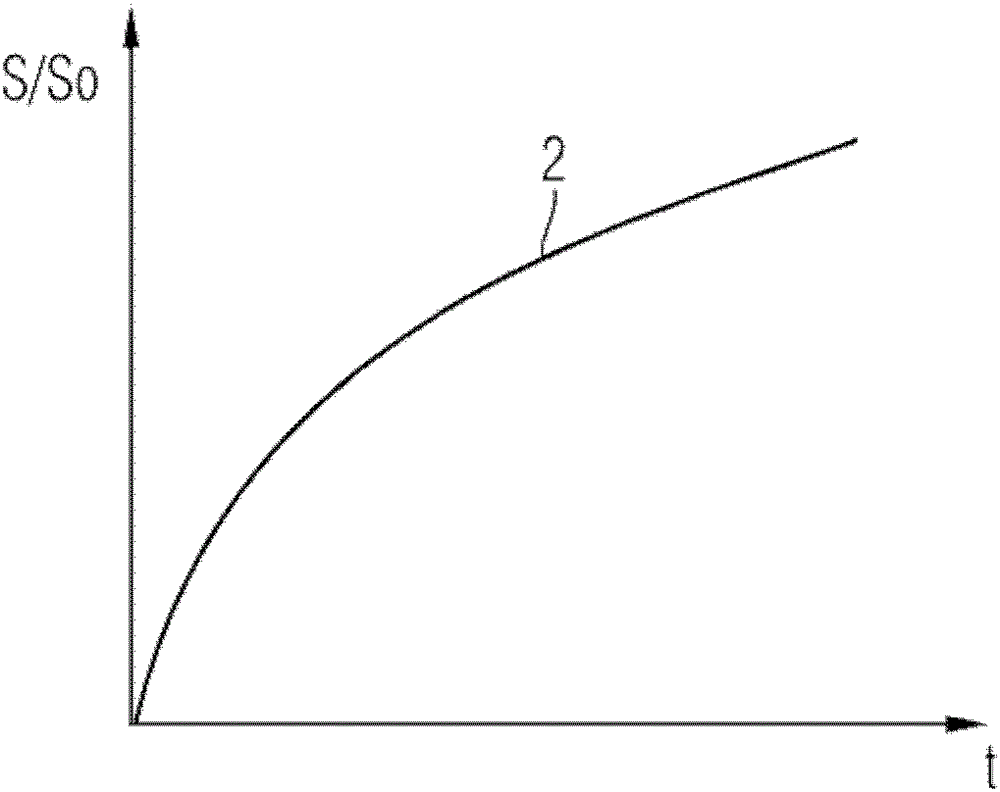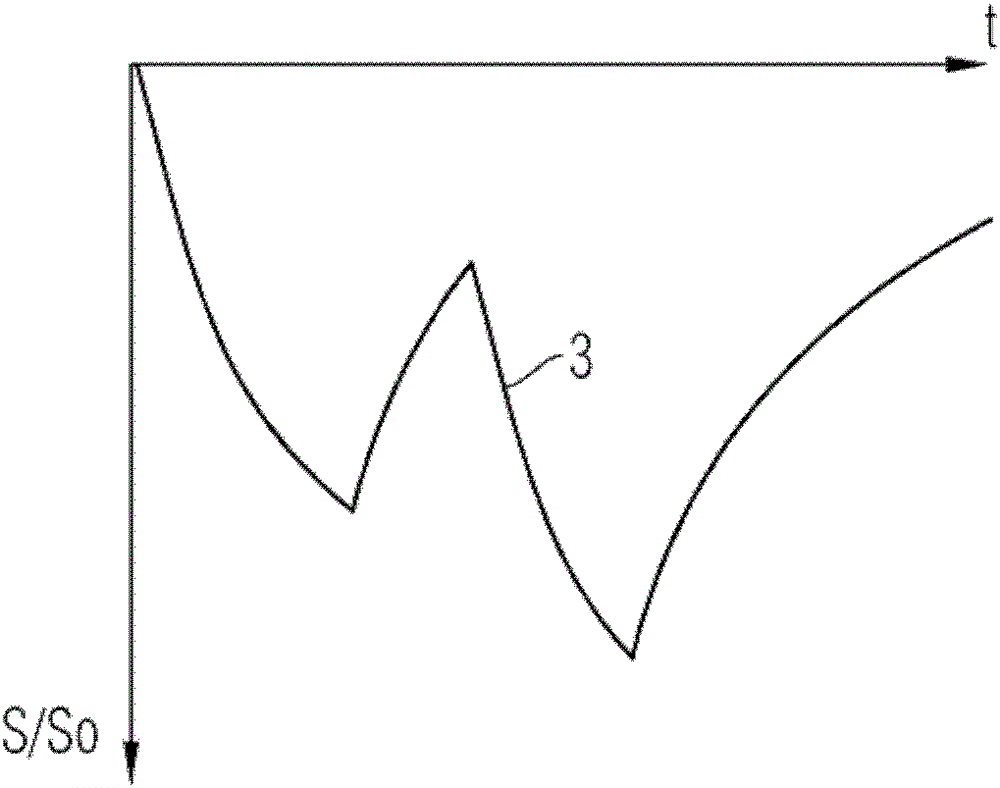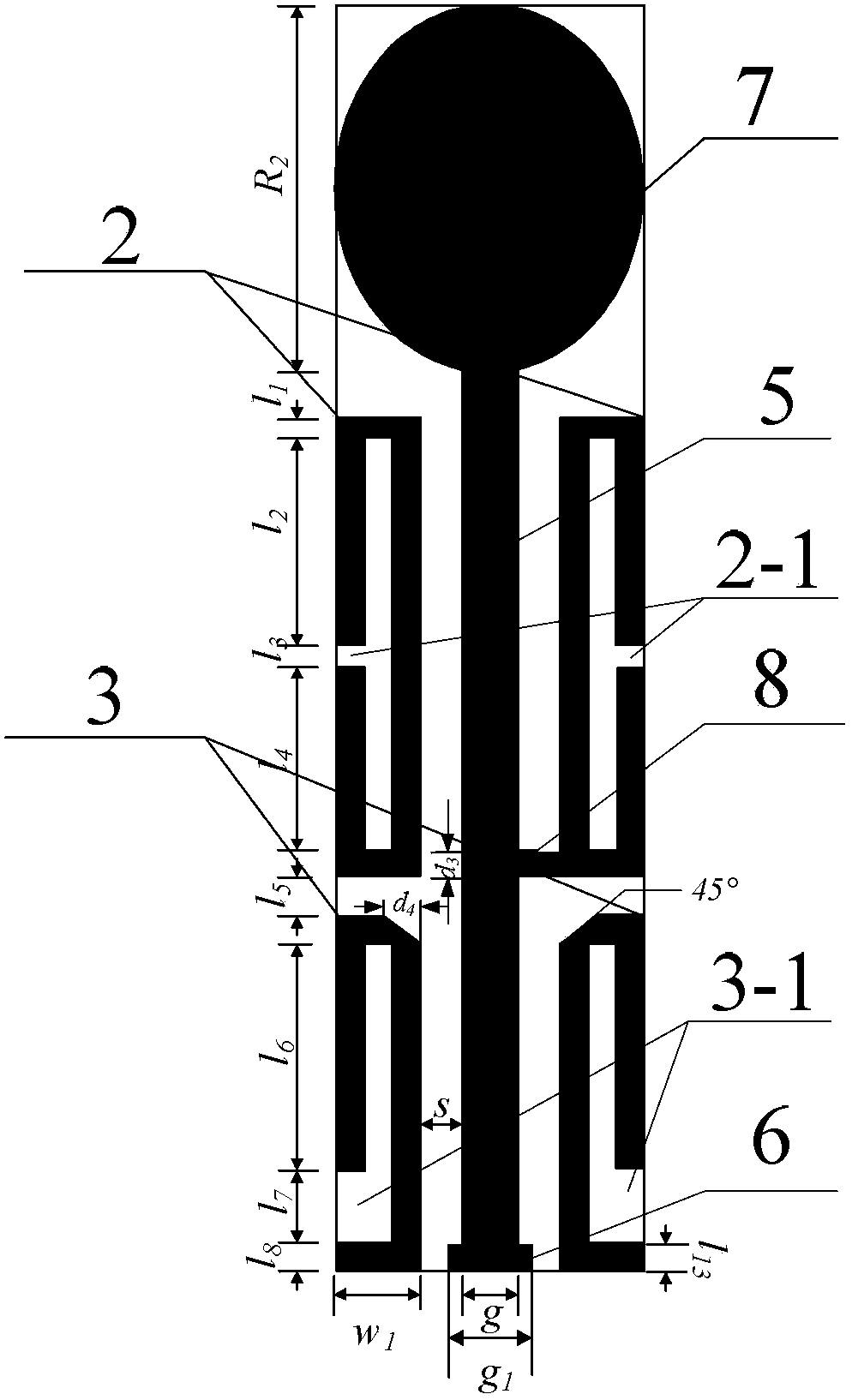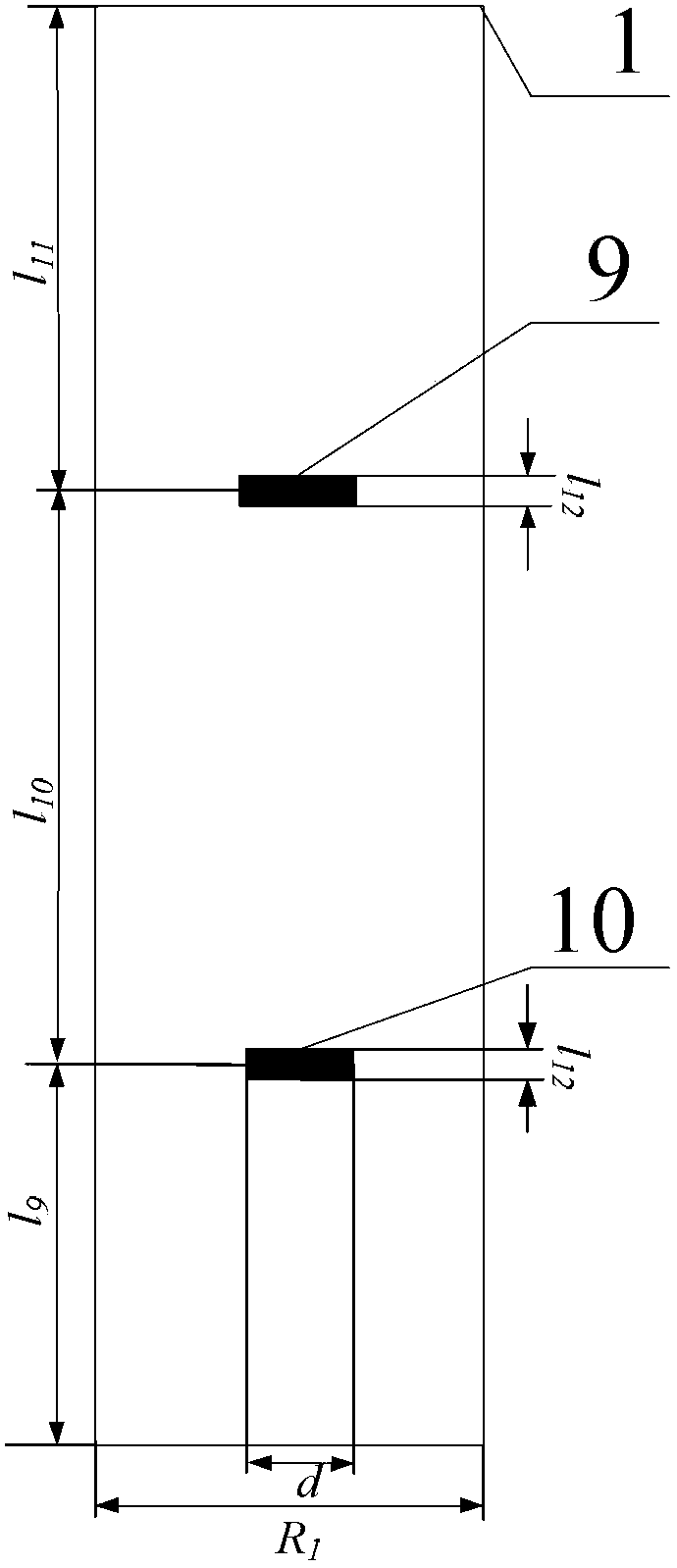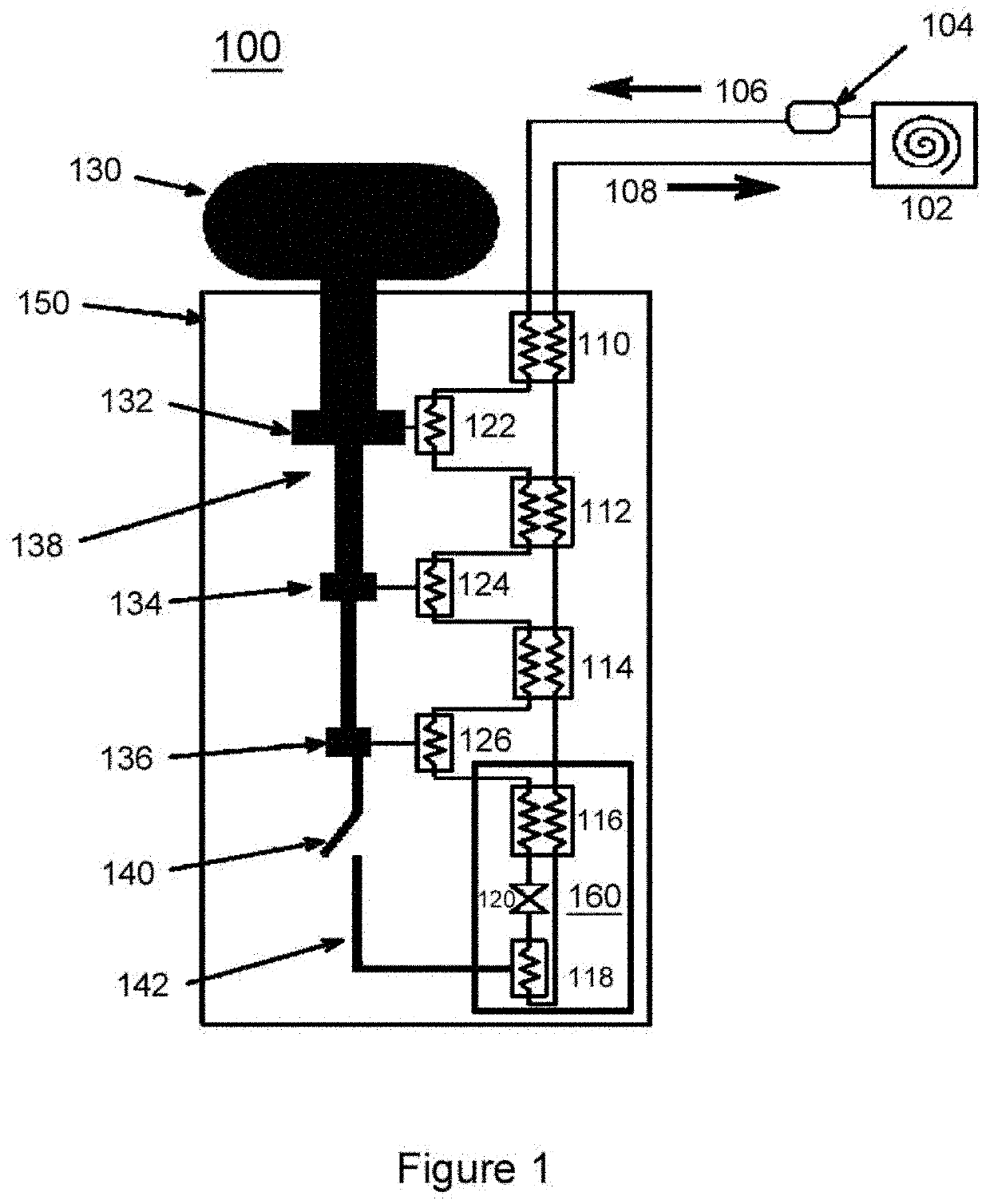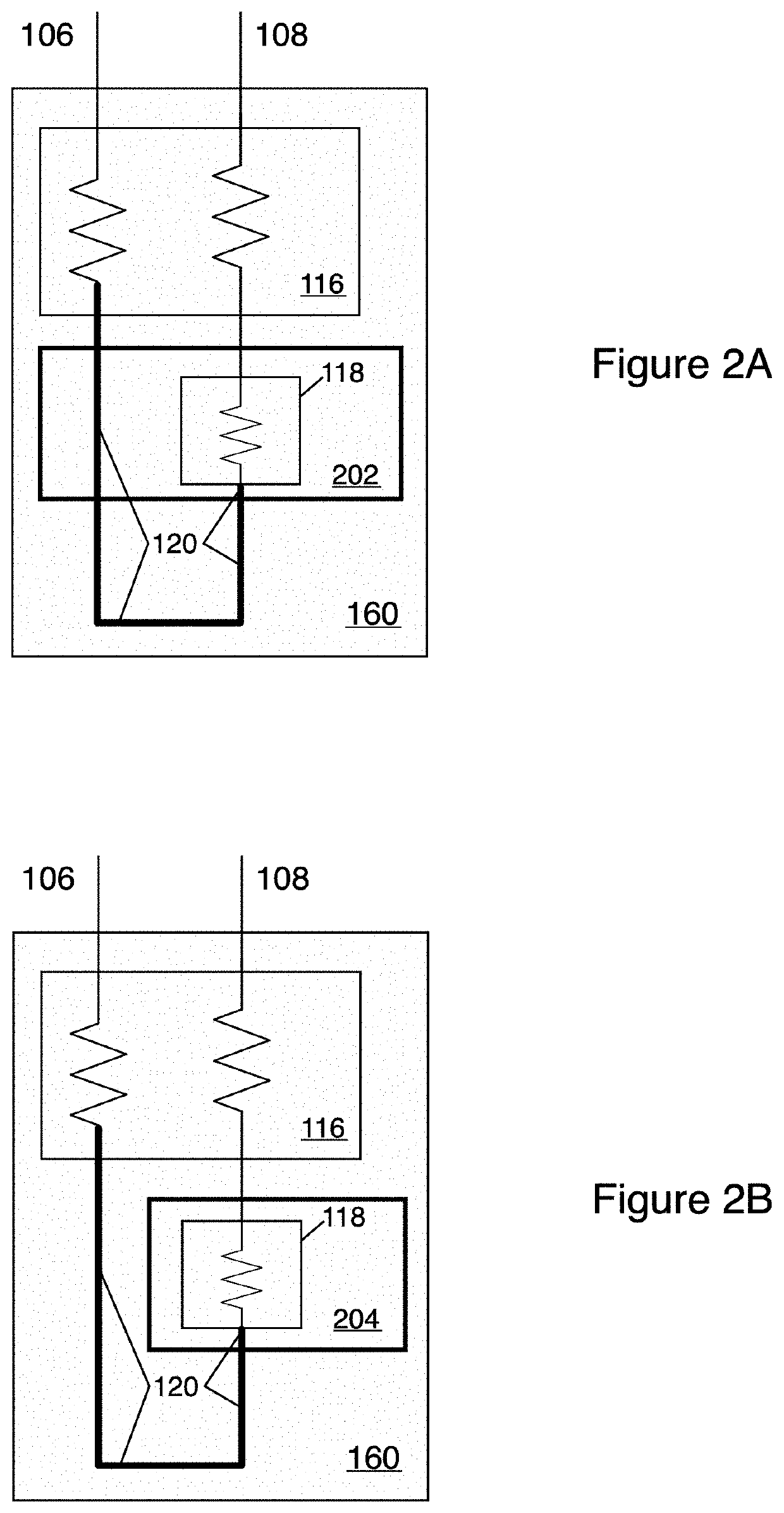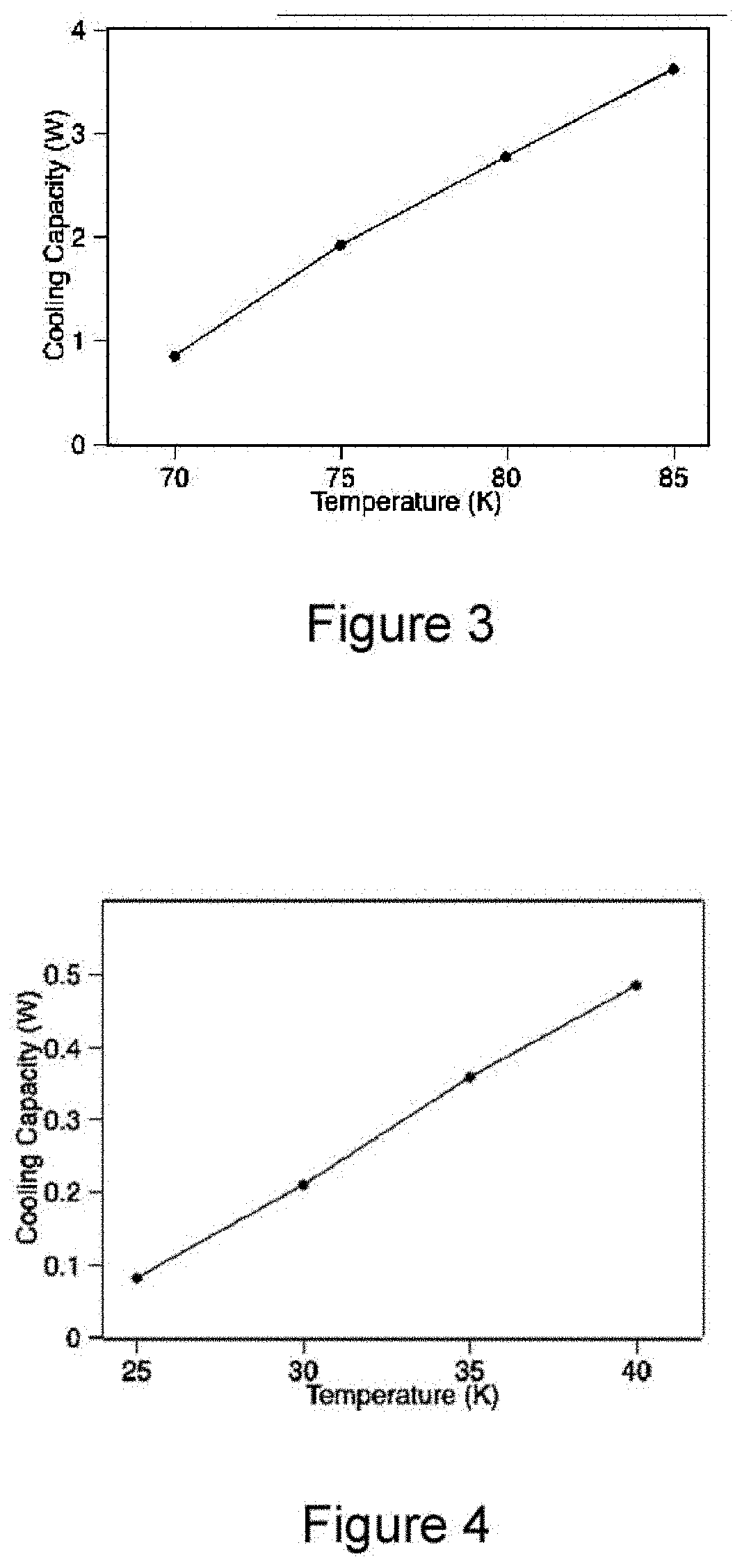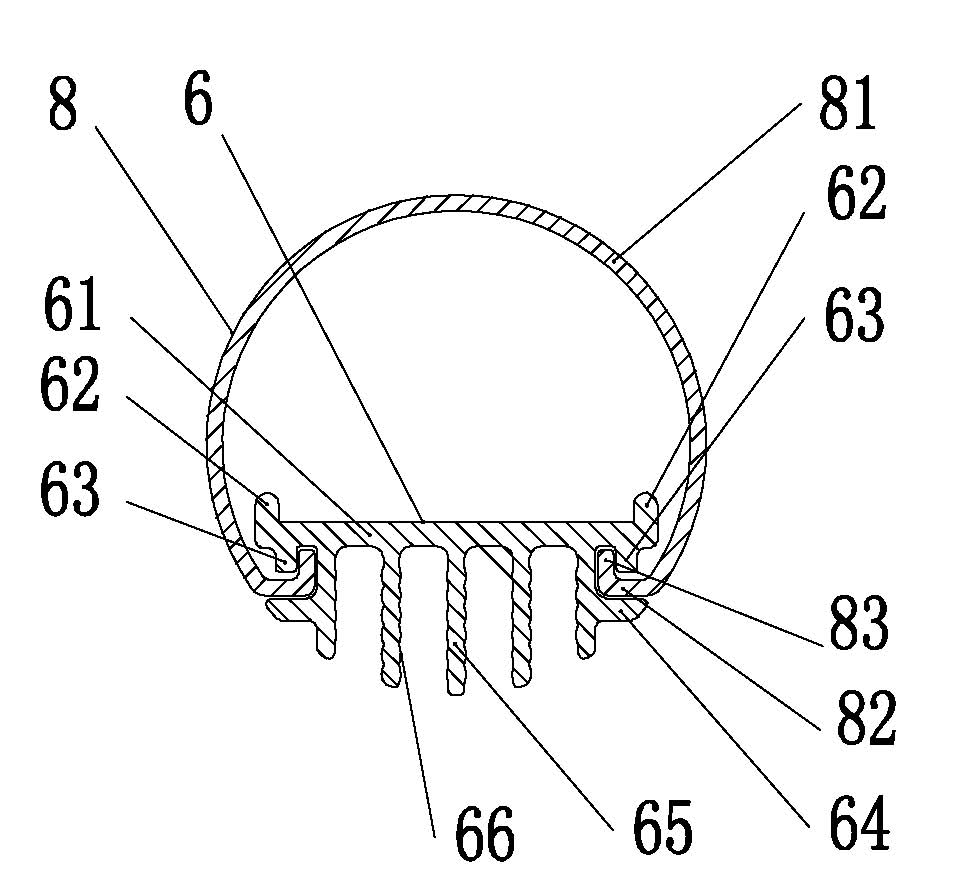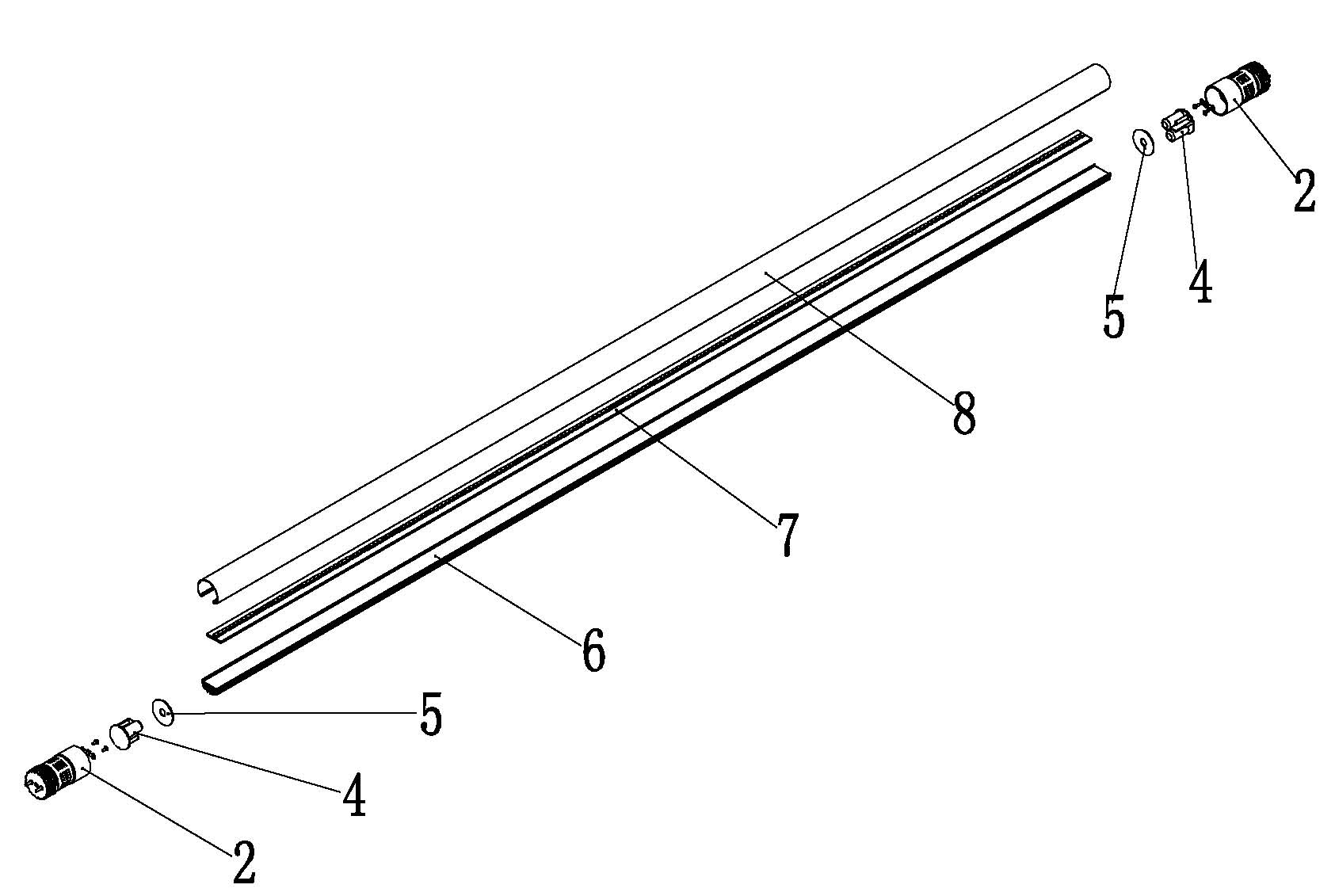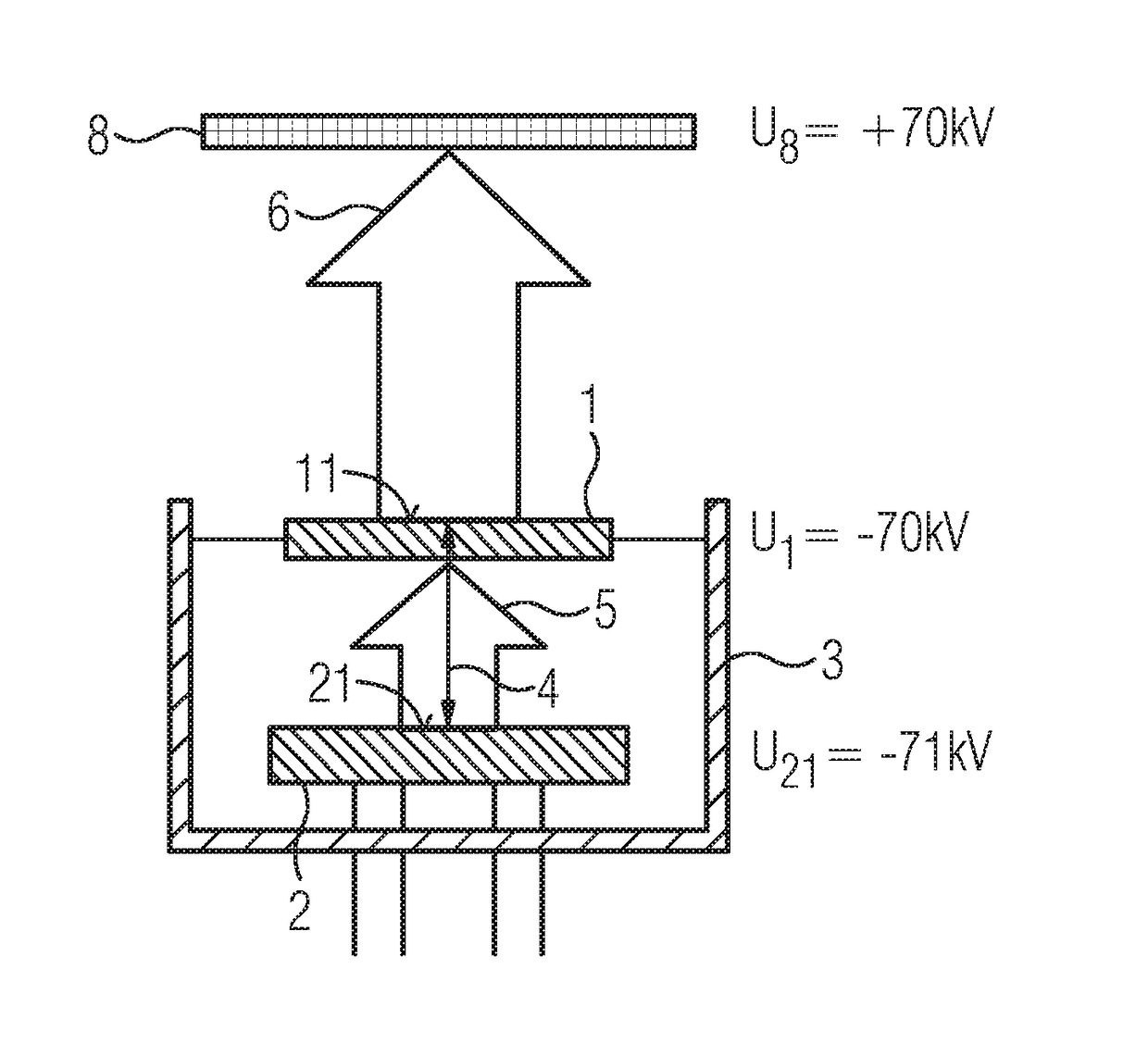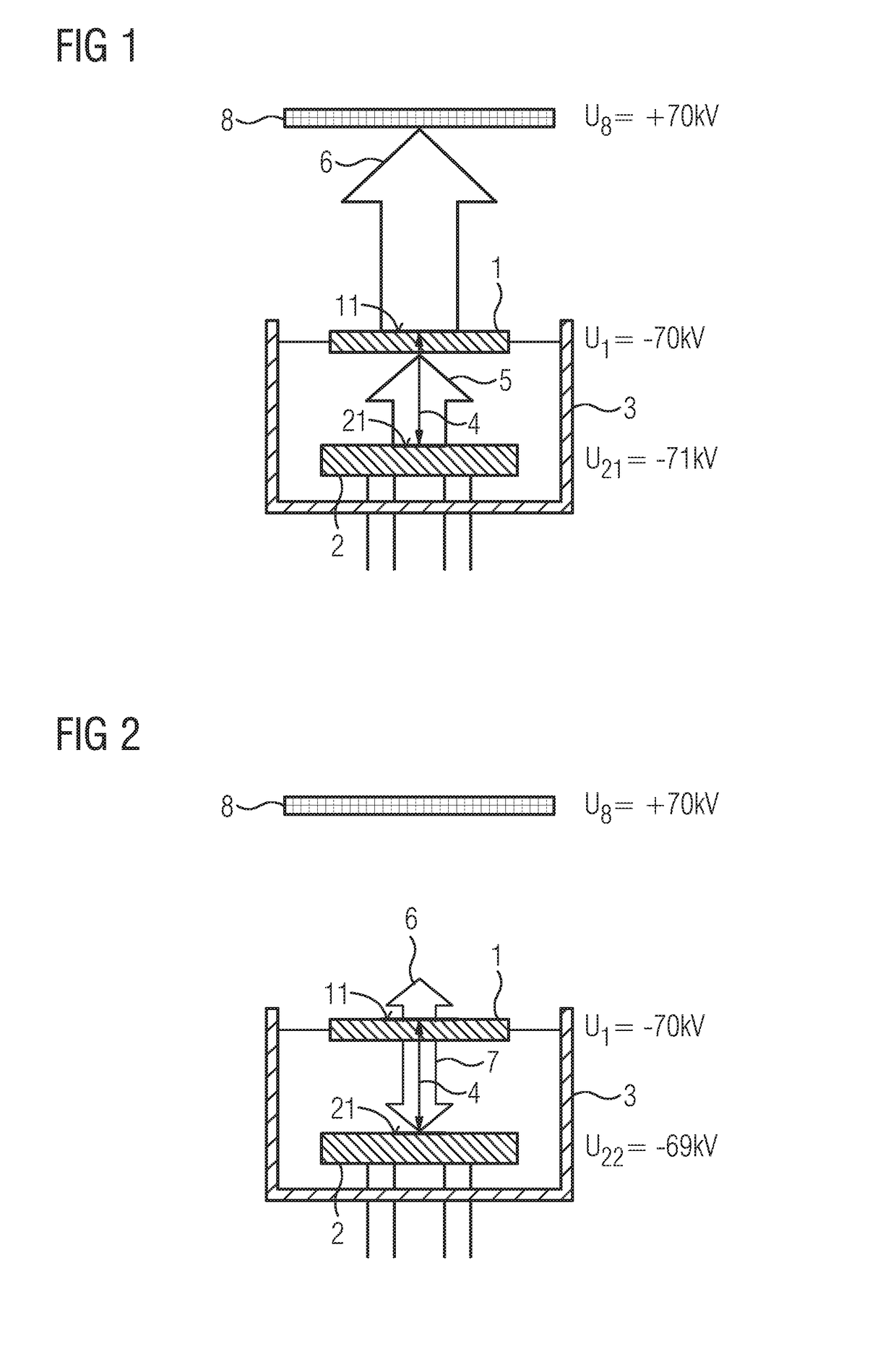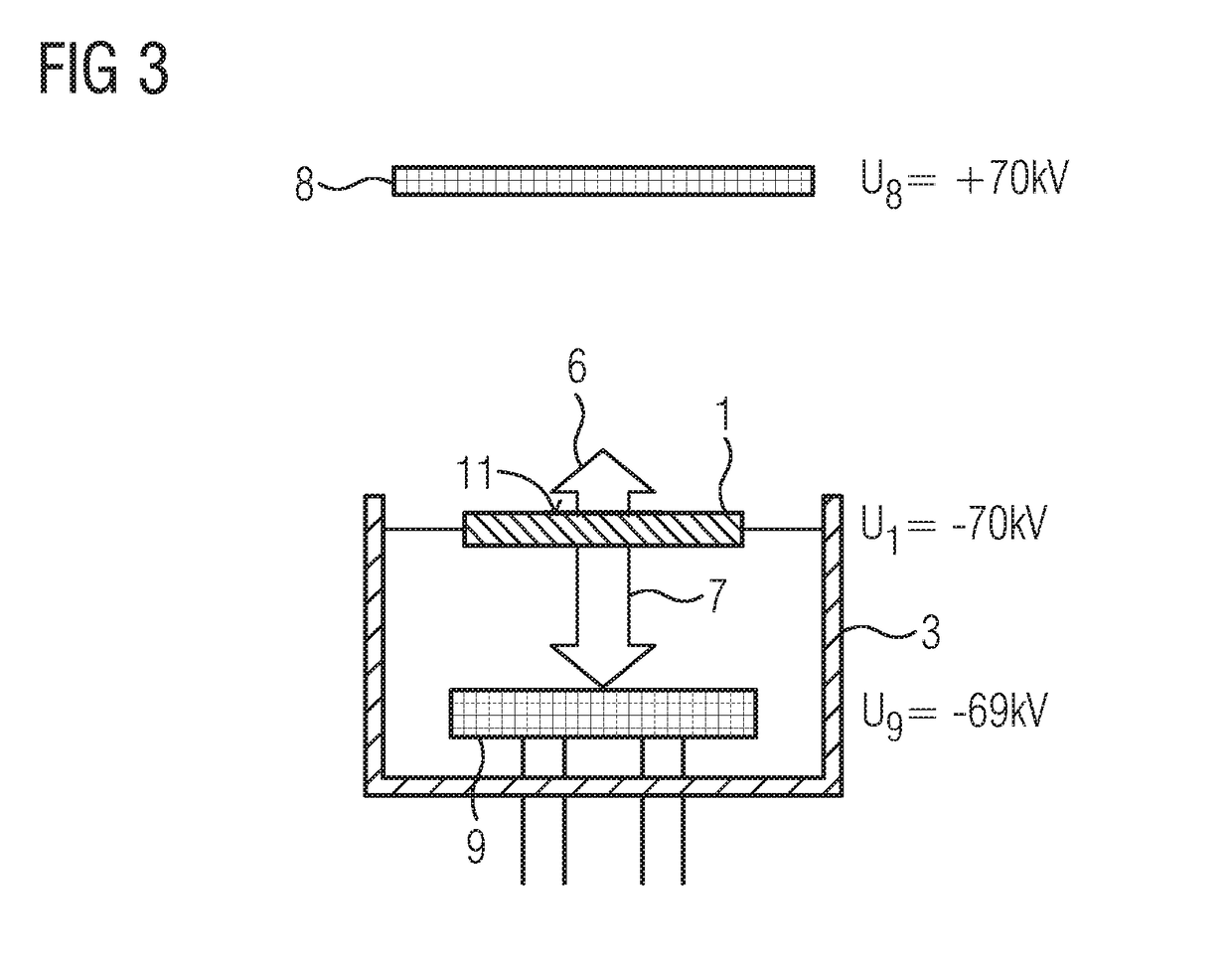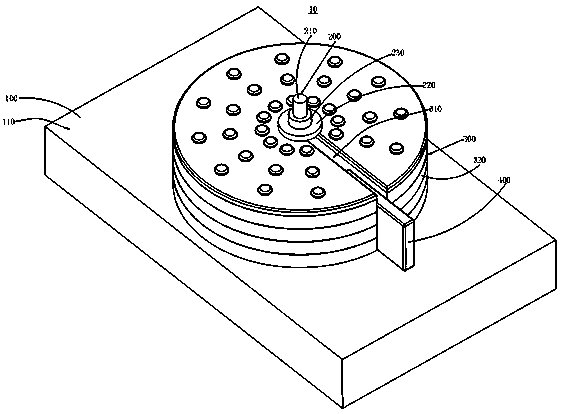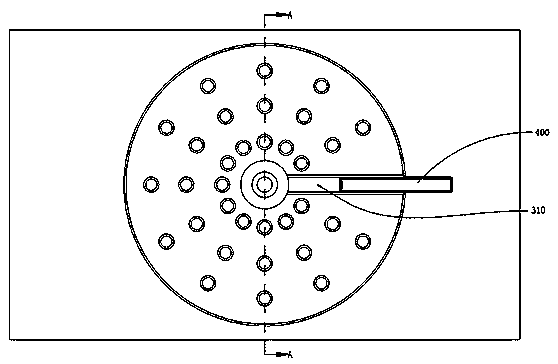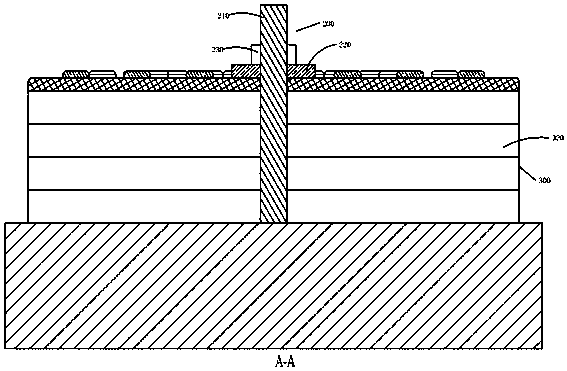Patents
Literature
31 results about "Radiation load" patented technology
Efficacy Topic
Property
Owner
Technical Advancement
Application Domain
Technology Topic
Technology Field Word
Patent Country/Region
Patent Type
Patent Status
Application Year
Inventor
Method and Device for Thermal Breast Tumor Treatment with 3D Monitoring Function
An X-ray machine for monitoring thermal treatment of human tissue produces a reference exposure of the tissue to be treated prior to commencement of the treatment. Thermal treatment is performed subsequently. Check exposures are made with the X-ray machine during the treatment or also during treatment intervals. The check exposures are performed as partial volume exposures at a lower radiation load than the reference exposures. From a comparison of check exposures with the reference exposures, conclusions can be drawn concerning changes of tissue temperature and also tissue properties.
Owner:AB CT ADVANCED BREAST CT GMBH
Method for producing high-quality reproductions of the front and/or rear sections of the eye
InactiveUS20100060728A1High-quality recordingRaise the ratioColor television detailsBuilding rescueComputer scienceRadiation load
The present invention makes it possible to make high-quality recordings of the anterior and / or posterior segments of the eye as an individual image or also as a sequence of images without increasing the radiation load on the eye to be examined. In the method according to the invention, at least one pre-flash is used in order to determine an optimal exposure time for the main flash based on the recording of the pre-flash which is reflected by the object to be recorded. Both the pre-flash and the main flash are controllable and the recordings of the pre-flash and main flash are recorded with the same sensor of the electronic camera and are evaluated electronically by a control unit, and the recording of the main flash and, as the case may be, of the pre-flash is analyzed and / or corrected and displayed to the user.
Owner:CARL ZEISS MEDITEC AG
Multi-split air-conditioning system control method based on prediction
ActiveCN109974218AGood comfortGood energy savingMechanical apparatusSpace heating and ventilation safety systemsAir volumeSimulation
The invention relates to a multi-split air conditioning system control method based on prediction. The method comprises the steps that firstly, the temperatures and humidity outside a building are predicted, and the space enclosing structure load and the solar radiation load of an air conditioning system are calculated; secondly, the periodic law of the number of people inside the building is predicted; thirdly, the operating time of the air conditioning system is predicted; fourthly, operating parameters including the outdoor unit wind speed, the compressor rotating speed, the refrigerant flow rate, the indoor unit wind speed and wind amount, and the indoor unit flow rate are monitored in real time; fifthly, the temperatures and humidity outside the building, the number of people in the building, the operating parameters and hourly COPs in multiple sampling periods are counted up as a training sample, a statistical or machine learning method is adopted for calculating all characteristic factors, comfort pre-control time and temperatures, and operating parameters corresponding to optimal COPs; and sixthly, the operating parameters corresponding to the optimal COPs in the to-be-controlled time points are predicted, and thus, the system operating parameters and pre-control time are adjusted. According to the multi-split air conditioning system control method based on prediction,the control precision is high, and the control comfort and energy-saving effect are improved.
Owner:中创美纵信息科技重庆有限公司
Method of estimating indoor heating and cooling loads by using estimated insolation
InactiveCN106461251ACalculate accuratelyMechanical apparatusSpace heating and ventilation safety systemsEngineeringCooling load
The present invention relates to a method of estimating indoor heating and cooling loads by using estimated insolation, the method being characterized by distinguishing between windows and doors and walls when obtaining a solar radiation load and an insulating load and by applying different load property coefficients for different compass bearings, so as to be able to more accurately estimate indoor heating and cooling loads.
Owner:GAGYOTECH
P (Positive) type insert layer with cycle structure and growing method
ActiveCN103872204AReduce dislocation densityImprove injection efficiencyPolycrystalline material growthFrom chemically reactive gasesQuantum efficiencyContact layer
The invention provides a P (Positive) type insert layer with a cycle structure and a growing method. An epitaxial structure of the P type insert layer comprises a substrate, a low-temperature GaN buffer layer, a GaN undoped layer, an N (Negative) type GaN layer, an MQW (Multiple Quantum Well) structure, a low-temperature P type GaN layer, a P type AlGaN layer, a high-temperature P type GaN layer and a P type contact layer in sequence from bottom to top; the growing method of the P type insert layer comprises the following specific steps that a PAlGaN / PinGaN cycle structure layer grows; the structure comprises three to ten structures that PGaN and PInGaN grow in an overlapping way; the growth is divided into two steps, i.e. growing an Al component to gradually raise the PAlGaN layer at first, and after the completion of growth that the PAlGaN layer is gradually raised along with the Al component, growing the PInGaN layer, and then continuously growing six PAlGaN layer / PInGaN layer cycles. According to the P type insert layer and the growing method, the dislocation density of PGaN can be decreased, and the crystalline quality can be improved; in addition, the generation of non-radiating load centers is inhibited, and the injection efficiency of cavities is improved, so that the light emitting efficiency of a gallium-nitride-based LED (Light Emitting Diode) is improved; thirdly, the diffusion of Mg atoms towards an active area is reduced, so that the internal quantum efficiency is improved.
Owner:宁波安芯美半导体有限公司
Lamp with adjustable heat radiation loads
ActiveCN106895367AImprove cooling effectLighting heating/cooling arrangementsLight fasteningsEngineeringHeat spreader
A lamp with adjustable heat radiation loads comprises a heat radiator, a heat radiation adjustment assembly, a heat radiation panel, a tightness adjustment assembly and a light source assembly. A first installing groove is formed in the edge of the heat radiator. The heat radiation adjustment assembly is attached to the heat radiator and comprises a plurality of heat radiation adjustment plates which are overlapped in sequence. The heat radiation panel is attached to the side surface, far away from the heat radiator, of the heat radiation adjustment assembly. A second installing groove is formed in the edge of the heat radiation panel. The tightness adjustment assembly comprises a first clamping plate, a second clamping plate, an adjustment screw rod, a cushion block, a fixing head and an adjustment nut, wherein the first clamping plate is arranged in the first installing groove in a sliding mode, the second clamping plate is arranged in the second installing groove in a sliding mode, the first clamping plate is provided with a threaded hole, and a first end of the adjustment screw rod penetrates through the threaded hole and is in threaded connection with the first clamping plate. According to the lamp with adjustable heat radiation loads, different heat radiation loads can be adjusted correspondingly to meet different heat radiation requirements.
Owner:东莞市闻誉实业有限公司
Strontium oxyorthosilicate phosphors having improved stability under a radiation load and resistance to atmospheric humidity
ActiveUS8173042B2Improve stabilityElectrical apparatusElectroluminescent light sourcesHigh energyVisible spectral range
Exemplary embodiments of the present invention relate to inorganic phosphors based on silicate compounds having improved stability under a resulting radiation load and resistance to atmospheric humidity, which are capable of converting higher-energy excitation radiation, i.e. ultraviolet (UV) or blue light, with high efficiency into a longer-wavelength radiation which may be in the visible spectral range. A calcium molar fraction x having a value between 0 and 0.05 is added to a silicate phosphor having the general formula Sr3-x-y-zCaxMIIySiO5:Euz.
Owner:SEOUL SEMICONDUCTOR +1
Method for reducing the radiation load by a mobile radio terminal with directional emission, and a mobile radio terminal with directional emission
InactiveUS7551890B2Reduce radiation loadPower emittedAntenna supports/mountingsSubstation equipmentSignal qualityMobile station
In a method for alignment of an antenna (1) with an adjustable directional characteristic in a mobile station in a mobile radio system, the alignment process is based on determination of two variables as a function of the direction, with the first variable being characteristic of the signal strength (6) and the second variable being characteristic of the signal quality (5, 15), and their evaluation (7). Furthermore, it is possible to make use of position information and alignment information relating inter alia to satellite-based navigation systems, and to take account of the alignment of the user.
Owner:INFINEON TECH AG
Strontium oxyorthosilicate phosphors having improved stability under a radiation load and resistance to atmospheric humidity
ActiveUS20110147662A1Improve stabilityElectrical apparatusElectroluminescent light sourcesHigh energyVisible spectral range
Exemplary embodiments of the present invention relate to inorganic phosphors based on silicate compounds having improved stability under a resulting radiation load and resistance to atmospheric humidity, which are capable of converting higher-energy excitation radiation, i.e. ultraviolet (UV) or blue light, with high efficiency into a longer-wavelength radiation which may be in the visible spectral range. A calcium molar fraction x having a value between 0 and 0.05 is added to a silicate phosphor having the general formula Sr3-x-y-zCaxMIIySiO5:Euz.
Owner:SEOUL SEMICONDUCTOR +1
Strontium oxyorthosilicate phosphors having improved stability under a radiation load and resistance to atmospheric humidity
ActiveUS20120181481A1Improve stabilityElectrical apparatusElectroluminescent light sourcesHigh energyVisible spectral range
Exemplary embodiments of the present invention relate to inorganic phosphors based on silicate compounds having improved stability under a resulting radiation load and resistance to atmospheric humidity, which are capable of converting higher-energy excitation radiation, i.e. ultraviolet (UV) or blue light, with high efficiency into a longer-wavelength radiation which may be in the visible spectral range. A calcium molar fraction x having a value between 0 and 0.05 is added to a silicate phosphor having the general formula Sr3-x-y-zCaxMIIySiO5:Euz.
Owner:SEOUL SEMICONDUCTOR +1
Plate electrode, single cell, cell stack, and fuel cell power system with cell stack
ActiveCN107104240AReduce cooling loadEfficient humidificationMotive system fuel cellsElectrochemical responseFuel cells
The invention provides a plate electrode, a single cell, a cell stack, and a fuel cell power system with the cell stack. The plate electrode comprises an plate electrode body and liquid dialysis holes. According to the invention, the key assembly, i.e., a bipolar plate, of the cell stack is designed and improved to be the plate electrode with the liquid dialysis holes on the basis of the principles of liquid dialysis, so the cell stack formed by the plate electrodes can utilize vaporous water produced by a fuel cell system to complete humidification of the cell stack via dialysis channels in the plate electrodes, and power in the process of cooling water circulation and heat produced by the cell stack are utilized in the process of humidification to reduce heat radiation load of cooling water; and since water produced by the reaction of the cell stack can be cyclically utilized, the fuel cell power system formed by the plate electrode with the liquid dialysis holes can highly efficiently use water heat of the fuel cell system and can realize internal humidification during electrochemical reaction, so humidification efficiency is substantially improved.
Owner:DONGFANG ELECTRIC (CHENGDU) HYDROGEN FUEL CELL TECH CO LTD
Direct feed omnidirectional printed antenna with radiation load
ActiveCN102760945AHigh gainSimple structureAntenna arraysRadiating elements structural formsOmnidirectional antennaCoplanar waveguide
The invention discloses a direct feed omnidirectional printed antenna with a radiation load, which relates to a printed antenna, in particular to an omnidirectional radiation printed antenna, and is used for solving the problem of incapability of simultaneously meeting the requirements of high omnidirectional radiation, large bandwidth and high gain existing in the conventional omnidirectional antenna. The lower end of a coplanar waveguide central feeder line is connected with a feeding port matching branch knot; the upper end of the coplanar waveguide central feeder line is connected with a radiation terminal load; a first vibrator and a second vibrator are mouth-shaped; one side of the first vibrator which is far away from the coplanar waveguide central feeder line is provided with a first square through hole; one side of the second vibrator which is far away from the coplanar waveguide central feed line is provided with a second square through hole; a second horizontal feeder line is connected with the first vibrator through two first metal through holes; and a third horizontal feeder line is connected with the second vibrator through two second metal through holes. The direct feed omnidirectional printed antenna is applied to the field of point-to-multipoint communication of a C waveband.
Owner:HARBIN INST OF TECH
Overlapped heat radiation structure
ActiveCN106895380APlay a guiding roleAnti-rotation effectLighting heating/cooling arrangementsAbutmentEngineering
An overlapped heat radiation structure comprises a bearing abutment, a supporting assembly, an overlapped assembly and a guide plate. The bearing abutment is provided with an installing surface. The supporting assembly comprises a supporting rod, a buffering ring and a locking ring, the supporting rod is arranged on the installing surface and sleeved with the buffering ring and the locking ring, the locking ring and the supporting rod are in threaded connection, and the locking ring abuts against the side surface, far away from the bearing abutment, of the buffering ring. The overlapped assembly is arranged on the installing surface and clamped between the buffering ring and the bearing abutment. The overlapped assembly is provided with a receding groove, and the supporting rod is located in the receding groove. The overlapped assembly comprises a plurality of overlapped plates which are overlapped. The guide plate is arranged on the installing surface and located in the receding groove, and the guide plate abuts against the inner side wall of the receding groove. In this way, different heat radiation loads can be adjusted correspondingly by adjusting the number of the overlapped plates of the overlapped assembly. In addition, the overlapped assembly is clamped between the buffering ring and the bearing abutment, and the overall structure stability is higher.
Owner:东莞市闻誉实业有限公司
Method for reducing the radiation load by a mobile radio terminal and a mobile radio terminal
In a method for alignment of an antenna (1) with an adjustable directional characteristic in a mobile station in a mobile radio system, the alignment process is based on determination of two variables as a function of the direction, with the first variable(6) being characteristic of the signal strength and the second variable (5)being characteristic of the signal quality , and their evaluation (7). Furthermore, it is possible to make use of position information and alignment information relating inter alia to satellite-based navigation systems, and to take account of the alignment of the user.
Owner:INFINEON TECH AG
A forecast-based control method for multi-connected air-conditioning systems
ActiveCN109974218BHigh control precisionMechanical apparatusSpace heating and ventilation safety systemsThermodynamicsAir volume
The invention relates to a prediction-based control method for a multi-connected air-conditioning system, comprising: 1. Predicting the temperature and humidity outside the building, and calculating the envelope structure load and solar radiation load of the air-conditioning system; 2. Predicting the periodic law of the number of people in the building ;3. Predict the time point of the air conditioning system to be adjusted; 4. Real-time monitoring includes the operating parameters of outdoor unit wind speed, compressor speed, refrigerant flow, indoor unit wind speed and air volume, and indoor unit flow distribution; 5. Count multiple sampling cycles The temperature and humidity outside the building, the number of people in the building, operating parameters, and hourly COP are used as training samples, and the operating parameters corresponding to each characteristic coefficient, comfort pre-control time, temperature, and optimal COP are calculated using statistical or machine learning methods 6. Predict the operating parameters corresponding to the best COP at the time point to be adjusted, so as to adjust the system operating parameters and pre-control time. The method has high control precision, and improves the control comfort and energy-saving effect.
Owner:中创美纵信息科技重庆有限公司
A dual-polarized broadband antenna dipole unit and a broadband dual-polarized antenna
ActiveCN104134856BSimple structureEasy to manufactureRadiating elements structural formsPolarised antenna unit combinationsElectromagnetic couplingElectrical conductor
The present invention is applicable to the technical field of communication, and provides a dual-polarized broadband antenna vibrator unit including: a radiator and a balanced feeding device; the radiator includes four radiating arms, and each radiating arm is provided with a hollow structure; each The periphery of the radiating arms is polygonal and includes a notch part matching the shape of the peripheral conductor, and the notch part of each radiating arm is electrically connected to a part of the corresponding peripheral conductor; each radiating arm is The corners opposite to the missing corners are provided with an open circuit, which is hollowed out together with the hollow structure, and the open circuit divides the opposite corners of the missing corners into two mutually symmetrical ends; a loading section is respectively extended from the two mutually symmetrical ends, The adjacent radiation arms form a closed electromagnetic loop through the electromagnetic coupling between the loading sections of the adjacent radiation arms. The invention is simple in structure, easy to manufacture, and has the advantages of beam convergence, excellent radiation performance and wide frequency band, and can realize the optimization of the electric performance of the antenna.
Owner:TONGYU COMM INC
Compact Low-power Cryo-Cooling Systems for Superconducting Elements
InactiveUS20190226724A1Minimize impactImprove cooling effectCompression machinesGas cycle refrigeration machinesFiltrationEngineering
A compact, low power cryo-cooler for cryogenic systems capable of cooling gas to at least as low as 2.5 K. The cryo-cooler has a room temperature compressor followed by filtration. Within the cryostat, four counterflow heat exchangers precool the incoming high-pressure gas using the outflowing low-pressure gas. The three warmest heat exchangers are successively heat sunk to three stages of a pulse tube to absorb residual heat from the slight ineffectiveness of the heat exchangers. The pulse tube cold head also absorbs loads from instrumentation leads and radiation loads. The pulse tube stages operate at around 80 K, 25 K, and 10 K. The entire system—cryo-cooler, drive and control electronics, and detector instrumentation, fits in a standard electronics rack mount enclosure, and requires around 300 W or less of power.
Owner:UNIV OF COLORADO THE REGENTS OF +2
Electromagnetic Compatibility Test Method for Electric Propulsion System
ActiveCN101750545BImprove consistencyReduce mistakesCurrent/voltage measurementElectromagentic field characteristicsElectricityElectric field
The electromagnetic compatibility test method of the electric propulsion system includes: the measurement of the wave transmission rate of the wave-transparent sub-chamber of the electric propulsion system; the measurement of the steady-state and transient electric field radiation of the electric Under transient conditions, the peak signal measurement of the power line; the comparative measurement of the conduction and radiation emission characteristics of the simulated load and the real thruster; the measurement of the influence of the plume on the communication, and the electromagnetic compatibility test data of the electric propulsion system. The method of the present invention does not need to be carried out in a professional electromagnetic compatibility laboratory, and the test is directly carried out in the field or the field where the electric propulsion system works. The error of the test result is small, which can truly reflect the electromagnetic compatibility performance of the propulsion system, and greatly reduces Reduced test costs and improved work efficiency.
Owner:BEIJING INST OF SPACECRAFT SYST ENG
Method for producing high-quality reproductions of the front and/or rear sections of the eye
InactiveUS8289382B2Raise the ratioIncrease loadColor television detailsBuilding rescueComputer scienceControl unit
The present invention makes it possible to make high-quality recordings of the anterior and / or posterior segments of the eye as an individual image or also as a sequence of images without increasing the radiation load on the eye to be examined. In the method according to the invention, at least one pre-flash is used in order to determine an optimal exposure time for the main flash based on the recording of the pre-flash which is reflected by the object to be recorded. Both the pre-flash and the main flash are controllable and the recordings of the pre-flash and main flash are recorded with the same sensor of the electronic camera and are evaluated electronically by a control unit, and the recording of the main flash and, as the case may be, of the pre-flash is analyzed and / or corrected and displayed to the user.
Owner:CARL ZEISS MEDITEC AG
Thermionic emission device, focus head, X-ray tube and X-ray emitter
ActiveUS10546713B2Reduce exposureImprove cooling effectX-ray tube electrodesCathode ray concentrating/focusing/directingNuclear engineeringThermionic emission
A thermionic emission device includes an indirectly heatable main emitter with a main emission surface and a connectible heat emitter with a heat emission surface. The heat emission surface is disposed at a predefinable distance from the main emission surface. In the operating state, the main emitter is at a constant main potential and the heat emitter can be switched between at least two heating potentials which differ from one another and which differ from the main potential. Through the use of the thermionic emission device, the radiation load for a patient is reduced in the case of dose-modulated x-ray recordings.
Owner:SIEMENS HEALTHCARE GMBH
Method for calibrating detector data of an x-ray detector and x-ray imaging system
The invention relates to a method for correcting detector data of an X-ray detector (C3, C5), wherein in the current measurement the resulting measurement sensitivity is For the attenuation and the restoration of the attenuation of the measurement sensitivity, the history of the radiation load of the X-ray detector is taken into account and the determined measurement signal is corrected by a correction factor that depends on the radiation load history. The invention also relates to an X-ray imaging system, in particular in a CT system or a C-arm system (C1), having a detector with a plurality of detector elements that are read channel by channel in groups, and a reading device. The reading device has computer aids (C10) for correcting the read detector data before further processing them into projection or tomographic images, wherein the computer aids have a memory in which the program code is stored, said The program code executes the method at runtime.
Owner:SIEMENS HEALTHCARE GMBH
Direct feed omnidirectional printed antenna with radiation load
ActiveCN102760945BHigh gainSimple structureAntenna arraysRadiating elements structural formsOmnidirectional antennaCoplanar waveguide
The invention discloses a direct feed omnidirectional printed antenna with a radiation load, which relates to a printed antenna, in particular to an omnidirectional radiation printed antenna, and is used for solving the problem of incapability of simultaneously meeting the requirements of high omnidirectional radiation, large bandwidth and high gain existing in the conventional omnidirectional antenna. The lower end of a coplanar waveguide central feeder line is connected with a feeding port matching branch knot; the upper end of the coplanar waveguide central feeder line is connected with a radiation terminal load; a first vibrator and a second vibrator are mouth-shaped; one side of the first vibrator which is far away from the coplanar waveguide central feeder line is provided with a first square through hole; one side of the second vibrator which is far away from the coplanar waveguide central feed line is provided with a second square through hole; a second horizontal feeder line is connected with the first vibrator through two first metal through holes; and a third horizontal feeder line is connected with the second vibrator through two second metal through holes. The direct feed omnidirectional printed antenna is applied to the field of point-to-multipoint communication of a C waveband.
Owner:HARBIN INST OF TECH
Determination of clinical characteristic parameter using combination of different recording modalities
ActiveCN107773243AImage enhancementDetails involving processing stepsDiagnostic Radiology ModalityBlood vessel
The invention relates to determination of a clinical characteristic parameter using a combination of different recording modalities and to a method for determining a clinical characteristic parameterof a body vessel segment. The method comprises a) providing (1), to a computing device, a three-dimensional reconstruction of a body vessel containing the body vessel segment; b) providing (2), to a computing device, segmented angiography recording of the body vessel segment; c) by the computing device, extracting (4) at least one global feature of the body vessel from the three-dimensional reconstruction; d) by the computing device, extracting (5) at least one local feature of the body vessel segment from the angiography recording; and e) determining (8) the clinical characteristic parameterof the body vessel segment according to the extracted local feature and the extracted global feature in order to compute the clinical characteristic parameter of the body vessel segment as accuratelyas possible in a case where the radiation load of a patient is the lowest.
Owner:SIEMENS HEALTHCARE GMBH
Adjustable cooling load lamps
ActiveCN106895367BImprove cooling effectLighting heating/cooling arrangementsLight fasteningsEngineeringHeat load
A lamp with adjustable heat radiation loads comprises a heat radiator, a heat radiation adjustment assembly, a heat radiation panel, a tightness adjustment assembly and a light source assembly. A first installing groove is formed in the edge of the heat radiator. The heat radiation adjustment assembly is attached to the heat radiator and comprises a plurality of heat radiation adjustment plates which are overlapped in sequence. The heat radiation panel is attached to the side surface, far away from the heat radiator, of the heat radiation adjustment assembly. A second installing groove is formed in the edge of the heat radiation panel. The tightness adjustment assembly comprises a first clamping plate, a second clamping plate, an adjustment screw rod, a cushion block, a fixing head and an adjustment nut, wherein the first clamping plate is arranged in the first installing groove in a sliding mode, the second clamping plate is arranged in the second installing groove in a sliding mode, the first clamping plate is provided with a threaded hole, and a first end of the adjustment screw rod penetrates through the threaded hole and is in threaded connection with the first clamping plate. According to the lamp with adjustable heat radiation loads, different heat radiation loads can be adjusted correspondingly to meet different heat radiation requirements.
Owner:东莞市闻誉实业有限公司
Compact Low-power Cryo-Cooling Systems for Superconducting Elements
PendingUS20220349628A1Minimize impactImprove cooling effectCompression machinesGas cycle refrigeration machinesControl electronicsProcess engineering
A compact, low power cryo-cooler for cryogenic systems capable of cooling gas to at least as low as 2.5 K. The cryo-cooler has a room temperature compressor followed by filtration. Within the cryostat, four counterflow heat exchangers precool the incoming high-pressure gas using the outflowing low-pressure gas. The three warmest heat exchangers are successively heat sunk to three stages of a pulse tube to absorb residual heat from the slight ineffectiveness of the heat exchangers. The pulse tube cold head also absorbs loads from instrumentation leads and radiation loads. The pulse tube stages operate at around 80 K, 25 K, and 10 K. The entire system—cryo-cooler, drive and control electronics, and detector instrumentation, fits in a standard electronics rack mount enclosure, and requires around 300 W or less of power.
Owner:UNIV OF COLORADO THE REGENTS OF +1
LED lamp tube
InactiveCN102062321AImprove operational reliabilityReduce cooling burdenPoint-like light sourceLighting heating/cooling arrangementsEngineeringLED lamp
The invention discloses an LED lamp tube comprising an upper cover, an LED base plate, a heat radiator, a power supply and a lamp cap; the LED base plate is installed between the upper cover and the heat radiator; the lamp cap is installed at two ends of the LED lamp tube; the LED base plate clings to the heat radiator and the LED base and the heat radiator are installed together; the cross section of the upper cover is a segment of more than 180 DEG; the cross section of the heat radiator is a segment of less than 180 DEG; and the cross sections of the upper cover and the heat radiator form an entire circle. In the LED lamp tube provided by the invention, the LED base plate is tightly connected with the heat radiator, and no air blockage exists between the LED base plate and the heat radiator, therefore, the heat radiation efficiency is greatly increased; the power supply is arranged at two ends of the LED lamp tube, thus, the heat of the power supply is prevented from entering the LED lamp tube, and the heat radiation load of the heat radiator is lowered, and the running reliability of the LED lamp tube is improved; and the transmitting angle of the upper cover exceeds 180 DEG, therefore, a better lighting effect is obtained.
Owner:东莞宏灿光电制品有限公司
A p-type insertion layer with cyclic structure and growth method
ActiveCN103872204BReduce dislocation densityImprove injection efficiencyPolycrystalline material growthFrom chemically reactive gasesQuantum efficiencyContact layer
Owner:宁波安芯美半导体有限公司
Thermionic emission device, focus head, x-ray tube and x-ray emitter
ActiveUS20180053622A1Reduce exposureImprove cooling effectX-ray tube electrodesCathode ray concentrating/focusing/directingSoft x rayThermionic emission
A thermionic emission device includes an indirectly heatable main emitter with a main emission surface and a connectible heat emitter with a heat emission surface. The heat emission surface is disposed at a predefinable distance from the main emission surface. In the operating state, the main emitter is at a constant main potential and the heat emitter can be switched between at least two heating potentials which differ from one another and which differ from the main potential. Through the use of the thermionic emission device, the radiation load for a patient is reduced in the case of dose-modulated x-ray recordings.
Owner:SIEMENS HEALTHCARE GMBH
Indoor Cooling and Heating Load Prediction Method Using Predicted Insolation
InactiveCN106461251BCalculate accuratelyMechanical apparatusSpace heating and ventilation safety systemsEngineeringCooling load
The present invention relates to a method of estimating indoor heating and cooling loads by using estimated insolation, the method being characterized by distinguishing between windows and doors and walls when obtaining a solar radiation load and an insulating load and by applying different load property coefficients for different compass bearings, so as to be able to more accurately estimate indoor heating and cooling loads.
Owner:GAGYOTECH
Laminated cooling structure
ActiveCN106895380BPlay a guiding roleAnti-rotation effectLighting heating/cooling arrangementsAbutmentEngineering
An overlapped heat radiation structure comprises a bearing abutment, a supporting assembly, an overlapped assembly and a guide plate. The bearing abutment is provided with an installing surface. The supporting assembly comprises a supporting rod, a buffering ring and a locking ring, the supporting rod is arranged on the installing surface and sleeved with the buffering ring and the locking ring, the locking ring and the supporting rod are in threaded connection, and the locking ring abuts against the side surface, far away from the bearing abutment, of the buffering ring. The overlapped assembly is arranged on the installing surface and clamped between the buffering ring and the bearing abutment. The overlapped assembly is provided with a receding groove, and the supporting rod is located in the receding groove. The overlapped assembly comprises a plurality of overlapped plates which are overlapped. The guide plate is arranged on the installing surface and located in the receding groove, and the guide plate abuts against the inner side wall of the receding groove. In this way, different heat radiation loads can be adjusted correspondingly by adjusting the number of the overlapped plates of the overlapped assembly. In addition, the overlapped assembly is clamped between the buffering ring and the bearing abutment, and the overall structure stability is higher.
Owner:东莞市闻誉实业有限公司
Features
- R&D
- Intellectual Property
- Life Sciences
- Materials
- Tech Scout
Why Patsnap Eureka
- Unparalleled Data Quality
- Higher Quality Content
- 60% Fewer Hallucinations
Social media
Patsnap Eureka Blog
Learn More Browse by: Latest US Patents, China's latest patents, Technical Efficacy Thesaurus, Application Domain, Technology Topic, Popular Technical Reports.
© 2025 PatSnap. All rights reserved.Legal|Privacy policy|Modern Slavery Act Transparency Statement|Sitemap|About US| Contact US: help@patsnap.com
